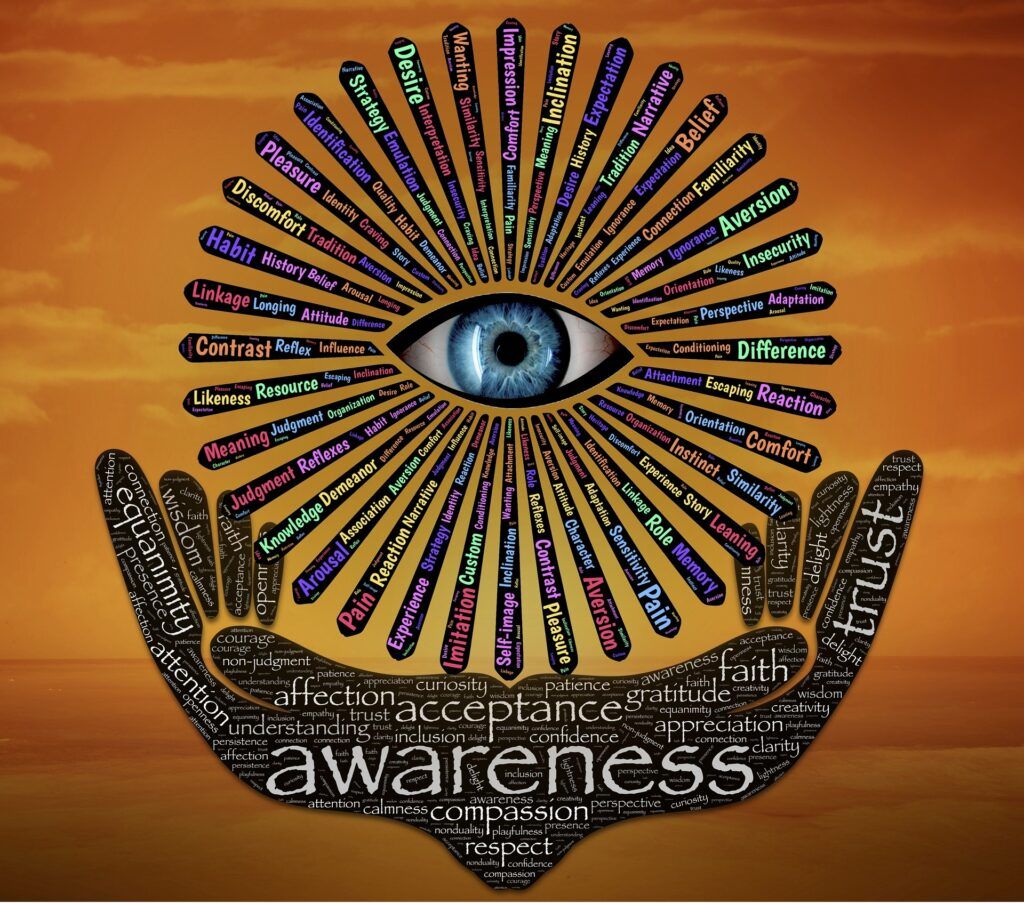
When someone says “great leader,” what do you believe they are? Do you believe they’re confident, results-oriented, empathetic, upstanding, well-spoken, and funny? Studies suggest that people with the ability to connect and build relationships with others are often seen as better leaders!
Back in the day, those who won the battles and the wars were considered great leaders.
They didn’t have to be liked, but they were respected because they brought results.
Let’s not forget that to be a leader of war, you had to be appointed by the king (or otherwise born into nobility), such as the knights in the 12th century.
But, even still, honor, courage, and respect were all respected qualities that a leader was required to have.
If you didn’t possess these qualities (and more), you may have been a leader, but not a great leader, even if you won all of the wars in the world!
This is more true today than ever before!
You don’t need to win a war, and you don’t need to be nobility to be a leader! Leadership is no longer reserved for the elite because the times are changing, and now we look up to many different kinds of leaders for many different reasons!
And, I’m 100% positive that not only do you have leadership qualities within you but that you also have the ability to grow and expand yourself, just like a great leader would!
Being a leader is all about developing and displaying certain personality traits that lead others (and yourself) to success.
You do not need to develop all of these traits to become a good leader, but trust me, it’s easier than it looks, especially after the “Leadership Snowball” begins to roll and grow bigger!
We will study how a leader acts, and why leaders do the things they do. How do they make tough decisions? How are they so productive? Why do they care for others when they can afford to only care about themselves?
This article is the ultimate guide to becoming a leader in both respects! Are you ready to embark on a journey… That begins in the past?
1• Become Honorable

Pardon me for not majoring in history. However, when it comes to honor and chivalry, the knights possessed many qualities we can benefit from learning about today!
During the high middle ages, knighthood was considered lower nobility.
Other, more prestigious titles were considered to be of higher nobility than the knight. So many, in fact, that I was going to list all of them here, but I’ll direct you to the link above instead. They would fill up an entire page on their own!
However, by the late middle ages, it was considered something greater.
If you were a knight, you weren’t just a skilled warrior – you were chivalrous, you abided by a code of conduct. You were a Christian warrior fighting to protect the lords.
These same lords trusted their skills on horseback to help them win their battles, to guard them in their times of desperation.
Knighthood would eventually become high nobility in the 15th century before fading away and becoming another snippet of interesting history, even though knighthood still exists in some churches and countries to this day!
Besides being skilled and brave in battle, they were very aware of a quality that is lacking in today’s world – honor.
Sure, they were expected to be strong, faithful, and loyal.
Sure, they were expected to be chivalrous (which had a specific meaning in the 13th century).
But, what was the secret quality that held everything together in a world of war and peace, ransom and (relative) lawlessness?
The knight’s ability to bake cookies.
No, it was honor! It was the respect he held for himself and the respect others had for him!

If a knight didn’t live up to his word, how was he supposed to be respected?
If he spilled the beans when he became captured, how was he keeping his kingdom safe? In other words, if he gave his word and he chickened out, he lost something almost as important as his life – his reputation.
Let’s go in a different direction with this – what do you believe “dying with honor” means?
Back then, it meant a knight died in battle while carrying out his promise, his word, by doing exactly what he said he was going to do!
If he told his lord, “today I will lead the charge into enemy lines,” and he died while doing so, he was considered an honorable man.
On the flip side, if he said he would lead the charge but he stayed in the back, he may have stayed alive but his honor would be gone forever.
Many knights would rather have died honorably than live like a coward, and this is why they didn’t become obsolete until new technological developments began taking place.
After all, if we still used the kinds of weapons they used in the 13th century, we’d still rely on knights to lead the way and protect our land the best they could! I reckon many of us would be knights as well.
On the same token, leadership was a little different back then, back when knights were prevalent and jousting tournaments were held during peacetime!
There were many wars, life was a lot more active and difficult, and ironically enough, more straightforward than it is today. The more battles you lead, the more wars you won, the better your reputation, the higher your rank of nobility, and more determined your “place” in the kingdom was!
Truly, most of it was centered around war and survival. If you led your army to battle and successfully overtake (or defend against) the enemy, and if you did this consistently, you were an effective leader, and you were to be respected!
Nowadays, however, leadership can be a tricky thing to define, but I firmly believe it still has a lot to do with honor.
Life has become more sedentary for many of us, wars and battles are not as frequent as they used to be, and life is more mediocre than it was back then.
But, even though we’re changing our lifestyles, we still value those who stick with their word, who do what they say they’re going to do at all costs!
Back then, if the knights didn’t act with honor, they suffered major consequences, but today, the consequences are not so severe.
In other words, it’s possible to act without honor and still be successful. People do it all of the time.
But, the ones who stick to their word and do what they say they will do with courage and confidence are often put in the spotlight, and rightfully so!

Even if they don’t know all of the answers, they remain confident and on track until the goal is accomplished!
This is why I believe honor is the most important quality in leadership. It comes before confidence, before empathy, before anything else. It’s the willingness and courage to do what you know you should, despite the negative consequences that may come your way!
Now, how do you know what you should do? Well, that’s a great question, one we’re answering today in this post!
Nevertheless, the willingness and courage to do what you know you should do comes before knowing what to do.
It gives you the motivation and enthusiasm to obtain the knowledge, and then act properly!
If you want to become a truly great leader, think about the knights who rushed into battle not knowing if they’d ever return.
Think about how courageous they were, and how much was on the line.
Think about why they did it; they did it for others, they did it for their country, but they did not do it for themselves.
Then, think about how you can be honorable in your life!
What courageous actions can you take for the good of others? In what way can you stick to your word, gather and give respect, and do what you say you’re going to do?
The choice is yours!

2• A Confident Leader Is A Great Leader!

Let’s face it – with confidence, we can accomplish anything we want.
And besides that, confidence is an amazing emotion to feel!
But, why do I call it an emotion? Isn’t it a mindset, or a way of doing things (“he’s confidently conveying the sales pitch”)?
Well, the answer is yes and no… At the same time!
While confidence is often described as, “the stuff that puts thoughts into action,” this description fails to answer an important question:
“Why do so many people work hard and lack even the most basic self-confidence?”
“Sure, working hard days and long hours is one thing, but to work with a confident spirit and a positive attitude?”
“It’s hard, difficult, even impossible…”
These were the words I used to answer the question with.
I worked harder than everybody else. I did more than everybody else. I broke my back getting everything done right, and I didn’t even get the raise I wanted, let alone my dream job.
I couldn’t understand what was happening, and I couldn’t understand why I was in so much pain. The insecurity, negativity, and fear paralyzed my being and I couldn’t find a way out for the life of me.
Then I found the secret.
I found the secret to confidence, romance, and even becoming financially independent!
I’ll share this secret with you…
If you buy my $999 book! It’s on sale (originally $1199), so go ahead, buy it now!
*Smiles from ear to ear*
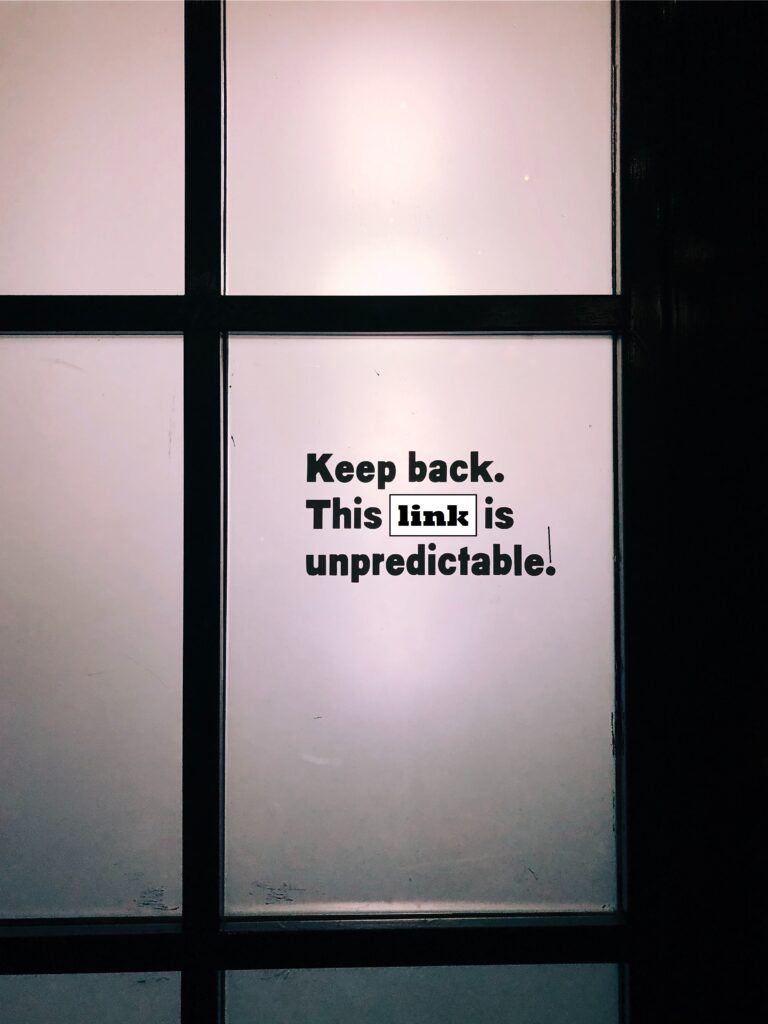
In all seriousness, I did set out to find the solution to my neuroticism, and what I found was a solid solution that was very simple:
Confidence is a mindset first, then a feeling. The feeling is considered energy, it gives you vitality to act. You take the energy, use it to act, and your actions produce results! Share on XIt’s the Mind, Feeling, Action effect, or MFA!
A thought/belief enters your mind, you feel the feelings that are generated from it, and you act while feeling these emotions.
It just so happens that (almost) everybody loves someone who acts from a feeling of confidence!
This is because emotions are contagious and because confidence feels amazing!
Let’s think about it like this: words are like keys, right? When we say the word, “banana,” we think of a banana. The word “banana” is a “key” to the mental image of a banana.
If I never said the word, it’s likely the image would’ve never popped up in your mind just now.
Confidence is the same way, except it goes a step further!
When you think of the word “confidence,” you’ll see an image in your head, but you may begin feeling a certain way as well!
I want to demonstrate this by doing a word test. Do you see certain images when you read these words? Do you feel a certain way when you read these words?
Love
Confidence
Passion
Leadership
Communication
Knowledge
Funny
If you saw and felt these words, then you know you’re on the right track!

Whenever you see the word “funny,” you think of something funny, then you’ll start laughing (sometimes).
In the same sense, when you think of the word “confidence,” you’ll start acting and feeling confident.
Sometimes it takes time and consistency to feel any real results.
For example, it took me 3 days of constantly repeating the word “confidence” to myself over and over in my head until I finally felt it from my own willpower for the first time!
How long you have to mentally immerse yourself in confidence before you feel it depends on your current mental state and how much you subconsciously resist confidence as a whole.
But, eventually, your mind will give in and begin producing more confidence (aka, serotonin) than ever before!
For now, just remember that confidence is a mindset first, emotion second. It’s its own emotion that’s very positive, regenerative, and powerful, and you can produce it with certain kinds of thoughts.
The more often (and consistently) you repeat these thoughts, the more confidence you begin to feel, even if you have negative beliefs and thought patterns!
Some of these thoughts are:
“I am confident.”
“I feel confident.”
‘I’m consistently overruling the insecure parts of me.”
“I feel more and more confident every day.”
“I am facing my fears with a confident attitude!”
“I am confident while I work, play, socialize, play games, approach women…” You can add anything you’d like here!
“I don’t compare myself to others; instead, I’m grounded in my own confidence.”
“I am enough, and I choose to be more.”
All of these thoughts are great for repeating every day until the emotion begins to show itself! It feels so, so good, and I’d hate to think anyone doesn’t feel it consistently!

Once you consistently feel confident from within, everything else will follow – your body language, communication, achievements, building good habits, and more will project your confidence and start a positive spiral! (Special thanks to MindTools for the inspiration!)
Apart from feeling good, confidence is proven to be healthy for you! Why is this? Because feeling confident is the same as having a lot of serotonin in your body. And serotonin, of course, has its unique plethora of personal benefits!
It’s easy to produce more serotonin through meditation, exercise, mindset changes, and more once we decide to do it (and keep doing it consistently)!
And lastly, a confident leader is a great leader.
Confident leaders inspire and motivate others. They encourage them instead of belittling them. They give them time and space to grow and develop.
They’re the best kinds of leaders because they know how to lead others in the right direction, and make them feel good the entire way forward!
They understand what a good, healthy goal looks like, and they understand how to lead their followers towards that goal in a pleasant way.
Will you choose to become more confident in your life? And, if you make the choice for the first time, will you continue to make the choice, consistently, every day?
I’ll leave that up to you 🙂
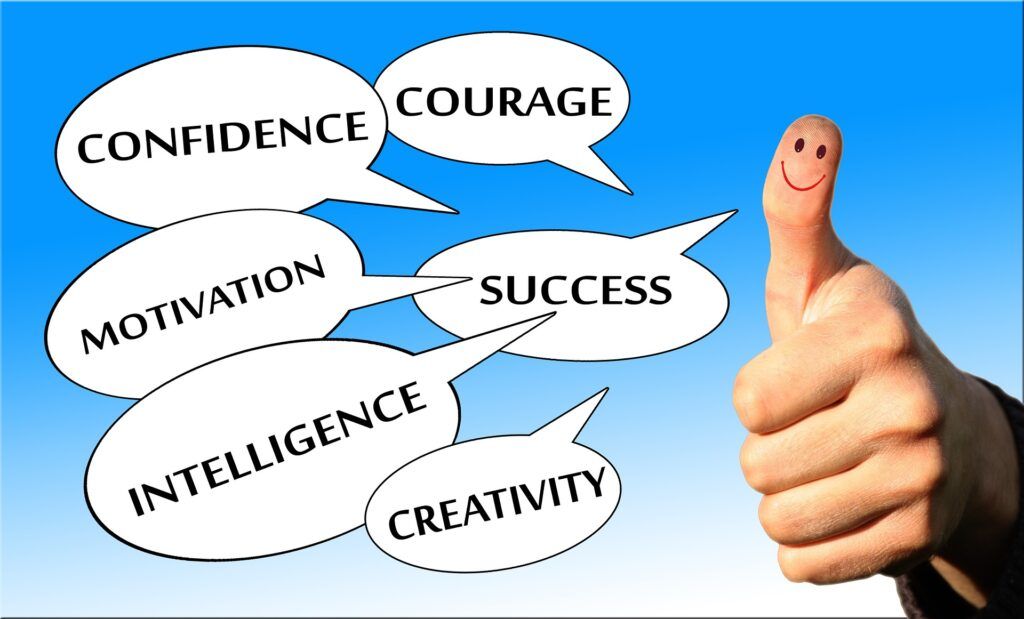
3• Assert Yourself Properly!

I used to think assertiveness was a negative thing, partly because I didn’t like what a lot of assertive people stood for.
When I was younger, so many assertive people seemed corrupt, selfish, and detrimental to others. I never wanted to follow them because they didn’t know what they were talking about.
Plus, something about them just… Felt off.
These corrupt people were asserting themselves, and they were getting what they wanted in body, but they didn’t seem to be getting what they wanted in spirit.
I wanted spirit, I wanted confidence, I wanted to learn how to love myself and others, among many other things.
So, I simply placed “assertiveness” into the “let’s not care about developing this characteristic” category.
I was only assertive when I had to be (IE, when I had to make money), but I took every opportunity to sit back and relax, not bother anybody.
But alas, I was mistaken! My view of assertiveness was skewed and slanted because I was letting these people influence my perspective!
Assertiveness isn’t necessarily a negative thing, and if you’re assertive within certain energies (like confidence, for example), you will be loved and appreciated for it!
In reality, assertiveness is not corrupt by nature, it’s simply the initiation of action, no matter if the action is big or small!
I’m being assertive simply by writing this post, and as a matter of fact, you’re being assertive by reading it!
Like we talked about in the “confidence” section, we can act from certain energies.
If a rattlesnake flies at you through the air (yes, this actually happened to one of my friends), you’ll receive an adrenaline rush, then you’ll act. In other words, you’ll act out of fear.
If you have a lot of serotonin going through your body, then you’ll act out of confidence.
Then, we can take it to the next level; being assertive in the proper way!
What does it mean to be assertive in the proper way?
If we go by my definition of assertion (the initiation of action), then you’ll figure out that we’re assertive every day.
After all, we participate in life! We have jobs, things we enjoy doing, things we do even when we don’t want to, and so on!
However, simply being assertive isn’t enough to become a leader. What is action worth if we act in the wrong direction, or even in a neutral direction?
A great leader knows they must initiate action for themselves and their followers at the same time. However, if they don’t initiate the right kinds of actions at the right time, the performance of the group will falter.
This may sound difficult to do, but don’t worry, it truly isn’t!
It’s all about knowing when to initiate, why, and in what energy.
This kind of information is different for different leaders in different kinds of leadership positions, but it’s very worth asking yourself these kinds of questions so that you know how to be assertive in the right way.
Questions like, “how can I properly assert myself in my situation?” are stellar for this, even if answering them (let alone living them out!) is a difficult process (which, often, it’s not!).
Allow me to give you an example: let’s say you’re the manager of a golf course, and your job is to lead the employees who are in charge of picking up the golf balls left behind from the group’s day.
As an employee, your job is simple; wait for the manager to tell you the coast is clear in a certain section of the golf course, and pick up the golf balls.
But as the manager, your job is a bit more complicated.
First, you have to keep in mind the company’s policy; no moving in to collect golf balls until the group has moved on to the next hole. This is what the owner wants because he doesn’t want his employees to bother the golfers.
But instead of seeing this rule being a hindrance, we can see it as an important indicator of when it’s time to be assertive. If the group has moved on to the next hole, you can be assertive by telling one of your employees to pick up the golf balls they left behind and put them in the “Used” basket for cleaning.
Moving on…
You have to keep track of each section, and how fast each group looks like they’re going. Consequently, you also have to keep track of where your employees are. Are they readily available, or do you have to look for them?
You have to keep in mind that Alexander doesn’t like being told what to do and that he appreciates you treating him as a friend rather than as a boss.
And lastly, you have to remember that Lily is really into you because you’re the boss, but you love your girlfriend, who’s at home because you make a ton of money, because you’re a great leader!
While this may seem like a lot to remember, let’s change our perspective a little bit.
What if we thought of all of these variables as filters and indicators for when we should become assertive?
As the manager, you don’t want to go around telling people what to do all willy-nilly. In the same tone, when you’re being assertive at the correct times (and for the correct reasons), you should keep in mind the energy you’re being assertive in.
Are you angry while you’re being assertive, even if you’re asserting yourself because an employee broke company policy? Or, are you confident and understanding while asking them not to do it again?
Pro tip: Being assertive while feeling confident will always work out for you in the end 😉
I call this the Correct Assertion Formula, or CAF. It’s also called the 3 W’s, when, why, and which. It’s when you:
–Know when to assert yourself.
–Know why you’re asserting yourself.
-Know which energy to assert yourself in.
Once you assert yourself with these three things, the fear of asserting yourself goes away, your assertion will be met with positivity, and you’ll have adopted a quality that all great leaders have possessed to date!
Let’s run through a few examples…
A group finally moved on to the next hole, which means it’s time to pick up their golf balls. The when is very clear, it’s time to tell an employee to get out there right now!
The why is very clear as well; if the golf balls aren’t picked up right now, the next group cannot begin to play. Plus, it’s company policy to pick them up as soon as the group moves on.
But, what about the how? As it turns out, Alexander is the closest employee to you, and he’s in a particularly bad mood today. This means the correct energy to assert yourself in is empathy.
Now you have the when, why, and how, and you’re 100% ready to correctly assert yourself!
You walk up, put your hand on his shoulder, and say something like, “I would really appreciate it if you picked up the golf balls in section 4 for me. Thanks, man, I hope your day gets better!”

How about another one…
Let’s say you’re sitting at a bar and you’re waiting for your friend to arrive. To your left, however, you see a man getting a little too friendly with a woman, and she’s clearly not into it. No one else notices except for you.
When? Now. Yesterday. Why? Because he’s making her uncomfortable, she doesn’t like him at all. How? Assert yourself with an aura of confidence and tell him to go away.
“Hey bud, she obviously doesn’t like that. Why don’t you sit somewhere else? I see a seat waaaay in the back for you.”
Even if he gets angry or vengeful, remaining in your confident aura is the way to properly deal with the confrontation. Eventually, he will get up, even if you make him do it.
She’ll probably thank you, at which point you can jokingly say, “Is this seat taken?” 😉

The CAF (or WWW) really does work, and it’s something I wish I knew about when I was in positions of leadership earlier in my life!
Properly asserting yourself is an easy thing to do, and it gets easier with time and practice, especially with the subtler things.
As a bonus, I’d like to thank PositivePsychology.com for an inspiring view on assertiveness vs. aggression:
“The difference is that assertive people seek to gain rights to put them on an equal footing with others, while aggressive people simply seek to gain rights. This distinction shows why assertiveness is considered a healthy, prosocial behavior while aggression is not.”
How can you properly assert yourself in your life? Are you willing to take on the challenge?

4• Become A Master Of Empathy

Do you enjoy connecting with people who make you feel good? Do you like it when you talk to someone and they listen well? Perhaps they even give some truly helpful advice?
So do I! I truly appreciate it when someone takes time out of their day to build a bridge with me and let me tell them my struggles. They get bonus points if they give me advice that’s helpful in the long run.
Would you like to become this person?
Do you want to become the one others look forward to spending time with, the one who can lift people’s spirits and encourage them to happily do anything you ask?
If so, then empathy is the key!
I’d love to go on and on about it, but first, let’s ask ourselves a very important question: What is empathy?
Is it just another quality you have to develop to become a great leader? Or… Is it something more? Something deeper?
The experts at Psychology Today share what it is, and their explanation is so fantastic I can’t help but add it into the post!
“Empathy is the ability to recognize, understand, and share the thoughts and feelings of another person, animal, or fictional character. Developing empathy is crucial for establishing relationships and behaving compassionately. It involves experiencing another person’s point of view, rather than just one’s own, and enables prosocial or helping behaviors that come from within, rather than being forced.”
Did you catch the last part?
Empathy “…enables prosocial or helping behaviors that come from within, rather than being forced.”
This is a critical step to developing empathy, and since this is true, developing empathy (even if you’re already very empathetic) is simpler than you may imagine!

Speaking of imagination, I have a game for us. Are you ready? Set? Go!
Pick a person you know well (besides yourself) and imagine them inside of your head.
Now, imagine them going through a normal day. What is their day like? What kind of job do they have? What kinds of people do they meet? What kinds of friends do they have? What are their hobbies?
Also, keep in mind their personality. Are they sensitive, or rather tough by nature? Are they intelligent, loving, sad, confident? In other words, how are they taking their experiences?
What don’t you know about them? When do they spend time away from you, and how do you guess they spend their time when they’re not with you (based on everything you understand about them)?
When you do this, you’ll have an idea of how they live their lives, and why they feel what they feel!
It’s hard to be 100% accurate with your prediction unless you live with them or know them very well (since you aren’t them).
However, performing this exercise allows you to step into their shoes and understand why they feel the way they feel, and why they believe the things they believe.
Once you have an idea of how they are, it’s much easier to see why they are the way they are, and therefore, it’s a lot easier to empathize with them.
Once you properly empathize with someone (that is, when you respond to what they mean instead of what they say), their mental wellbeing will shoot through the roof!
Why is this true? Because you’re validating a part of them that is vulnerable!

And when you validate a part of someone that’s vulnerable, you’re healing them, and building a connection with them at the same time, two things that are extremely beneficial to them, and two things that make you a great leader as well!
Back in the old days, many leaders didn’t have empathy. They were very busy planning their attack (or defense), and empathy was seen as an afterthought (if it was even considered at all)!
In today’s time, however, empathy isn’t just an afterthought – it’s critical for upkeeping your follower’s wellbeing, for establishing a connection with them, and for showing them that you’re more than just a leader – you’re an amazing leader, a leader who knows them well, and a leader who isn’t afraid to be empathetic with them in their trying times!
As I’ve implied, you don’t need to be born empathetic, being empathic is a skill you can practice right now!
It’s like a muscle; the more you practice, the larger and more established it grows, the more precise your words will be, and the better you can make them feel!
It’s like learning how to build confidence, or learning how to be funny. You can be born a funny person, but you can learn how to be funny as well.
And, even with a concept/emotion hybrid like empathy, you can become more empathetic the more time and energy you put into building it as a skill.
How do you build empathy? You can always try the Day In The Life Of technique, or DITL, which we’ve just done!
Once we have a basic understanding of our “empathetees,” it’s a lot easier to show them love and build a connection with them, a connection that lasts for a long, long time.
And once it’s easier to show empathy to our followers, sometimes we’ll do it without even trying! You’ll validate them without even knowing about it, and many people consider that to be the purest form of empathy (since there isn’t a [potentially negative] intention behind it).
While empathy is amazing for the workplace, it’s wonderful for your friends, family, and partner(s) as well!
Being able to step into the shoes of your partner and see life as they see it is an amazing way to build a loving, long-lasting relationship!
It even goes a long way when it comes to the small things; if we’re empathetic towards our partner, we’ll have a better idea of what gift they’d love to see when they come home.
But, here’s the best part about all of this; becoming a master of empathy means you can be empathetic towards the vulnerable parts of yourself!

Oh yeah, this is where the going gets good!
All of us have had troubles in our lives. All of us have certain things we don’t like to admit, secrets we’d rather keep to ourselves. We like to keep our defenses up and, sometimes, ignore the parts of ourselves that are crying out for help.
I’m guilty of doing this. Granted, there used to be a lot of things I didn’t want to be vulnerable about, but as soon as I developed my empathy to a certain point, I began reaching out to these parts of me and starting to comfort them.
While this may sound a bit mushy, it’s quite an important thing to do for your mental health!
If you have suppressed trauma, the best way to heal it is to approach it with a loving and empathetic attitude. Envision the trauma as a person, then imagine yourself understanding that person, healing that person, hugging them, or otherwise validating them!
The more we are empathetic with ourselves, the better we can be empathetic with others, sometimes without even trying!
This is something that often takes time. Sometimes, multiple parts of ourselves want to be approached with an empathetic attitude. However, once we heal ourselves from all of our trauma, we’re often empathetic to others without realizing it!
And, even if you aren’t there yet, any step you take towards being empathetic towards yourself and others makes you a great leader.
How can you be more empathetic in your life? Will you take on the challenge of being empathetic to yourself and others?
The choice is yours!
5• Understand Your Inner Alpha Male/Female

Many of us have our own opinions of who an alpha is in our society.
If you’re like me, you used to think that “alpha male” was synonymous with “tough guy, gangsta,” or even “the corrupt dominator.”
Perhaps you think this is who an alpha is! Perhaps, if you’re like me, you subconsciously pushed that part of yourself away because you didn’t want to adopt it into your life.
However, I encourage you to shift your perspective on who an alpha is!
All of the qualities I mentioned above are not qualities of the alpha. A tough guy can be explained by speaking the words “tough guy,” not “alpha.” They’re two entirely different kinds of people.
Everybody’s inner alpha is slightly different, so while I put these qualities below, it may differ depending on who you are, and who your inner alpha truly is!
An alpha is:
–A great leader (what we’re learning about in this post!).
-Void of insecurity and doubt.
-Confident.
-Compassionate.
-Protective.
-Successful.
-Passionate.
-Funny.
…and more!
One alpha I used to know (who we’ll call John) was always relaxed, all the time, even when his job as a bartender became stressful.
He had messed up feet that made it difficult to walk at times, but he’d always show up, calm and confident, and he did his job, no matter how much pain he was in.
I asked him one night, “why are you so calm all of the time?”
And he replied with, “I always have a plan,” meaning he was always ready to fight or escape any situation he was in.

John took (probably takes, I don’t know) being a “tough guy” to school with an entirely different perspective that I believe we can learn from!
Instead of seeking conflict, or subconsciously believing he couldn’t handle it, he was always ready for it in a non-confrontational way.
If a threat presented itself (as it occasionally did) he would de-escalate the situation with his words and calm demeanor.
If he couldn’t, then he always had a plan!
But, let’s come back to reality for a little while.
I can tell you a bunch of stories, and I can give you a list of qualities to develop so you can become more of an alpha. However, there’s something I ought to mention, something you should know.
The alpha you seek from the outside is really on the inside!
You have your own, personal, individual alpha archetype sitting in your subconscious and waiting to be discovered.

Don’t believe me? Don’t worry, all you have to do is choose to discover it, just like how most of us (subconsciously) choose to discover (and act out) the “weakling” or “insecurity” archetypes.
Alternatively, you can choose to form beliefs that enable alpha energy to spring forth within you, beliefs such as, “I am alpha.” “I act like an alpha.” “I feel like an alpha.”
Once you begin feeling and acting like an alpha, you can increase the amount of alpha energy you have within you by forming beliefs such as, “I am the alpha of alphas.” “I am becoming more alpha every day.” “The beta within does not have power anymore.”
Allowing this archetype to spring up within you makes you respected, looked up to, and trusted!
It makes you a great leader, it gives you certain qualities that are helpful for yourself and others, and it’s what makes you a “real” man or a “real” woman (mostly in the eyes of others)!
Yes, I can give you some qualities that other alphas have displayed over the years, but I don’t believe these qualities capture the essence of the alpha. Instead, they spring forth as a result of being an alpha.
That’s why I encourage you to look within and pull out the power you already know is there.
Give it a nice tug and choose to adopt the energy, and I promise you, it’s not going to change you for the worse, only for the better!

I mentioned, “taking power away from the beta” a few paragraphs ago. If you have an inner alpha, then you most likely have an inner beta, and perhaps the inner beta is what’s (subconsciously) keeping you from becoming a great leader.
Insecurity, doubt, negative submissiveness, and more are all common manifestations of the inner beta. Most people hate these qualities, and you may not be very fond of them either.
However, let’s approach your inner beta differently. Let’s approach him/her as someone who should be taken care of.
Instead of hating a part of you that’s, well, a part of you, let’s treat him/her like they’re a real human being with real wants, needs, and desires.
Let’s treat your inner beta with respect instead of disdain.
After all, this is what most alphas would do, especially with betas in real life.
Most alphas do their best to ignore betas altogether, and when they interact with them, they treat them with respect and kindness instead of disgust and hatred.
Instead of saying something like, “why do I feel so insecure all the time? I need to stop feeling that way,” let’s say something like, “I understand that I feel insecure. Why, exactly?”
Asking this question prompts an intuitive response to come from your subconscious mind, a response that’s 100% accurate. It’s your inner beta responding to you, and it’s telling you what it needs and desires.
Why is this important to do? Why have a dialogue with your inner beta when you can just start acting like an alpha and be done with it?
Because ignoring yourself is never, never a good idea.
If you ignore any part of yourself, it’ll simply show itself in ways you don’t appreciate.
This used to happen to me all the time!
I used to subconsciously suppress my anger in favor of other emotions… What I didn’t realize was my anger was seeping into my life in other ways, like random, uncontrollable outbursts.
As soon as I started letting the subconscious anger flow into my conscious mind, I was able to control myself better and release the anger in healthy ways.
Not only that, I was able to speak to my “angry self” and reason with it, find out what the problems were, and why I was so angry.
It’s the same process for properly interacting with your inner beta.
Respect him/her, let them speak, build a connection with them, and eventually, you will take control over yourself and stop (subconsciously) acting as a beta altogether!
After all, every part of your personality is you. It’s your energy, and since it’s your energy, you have the power to take it back at any time and use it however you’d like!
But, if you treat yourself with kindness, confidence, and respect first, your inner beta won’t be resistant towards your alpha self, and you’ll eventually be able to speak to it and convince it to change for the better.

Like I’ve insinuated, your inner beta isn’t the only part of you you can approach like this. What if you have an angry part of you? A fearful part of you? A sad part of you?
If you approach these elements of your personality with alpha energy, it’s a lot more likely these “restless” parts of you will feel comforted, and that you can take away your “triggers” once and for all, which makes you a very integrated and healthy person.
Once others see you after you take care of yourself, they’ll (subconsciously) know that you’re capable of taking care of them as well – and you will be!
Of course, an alpha should protect his/her territory, friends, family, group, following, etc. Of course, they should live their own lives and do what’s best for themselves first and others second.
However, these qualities are more mainstream so I’m confident you understand them already.
What I encourage you to do, however, is to not be “tough,” “on-edge,” or engage in “toxic masculinity,” but only defend what’s yours when the time arises. This goes with knowing when, why, and how to assert yourself, as we discussed in tip #3.
Alphas don’t go looking for trouble; they spend the time they could be using to look for trouble doing other things, such as expanding their (already massive) alpha energy.
But, when trouble presents itself, an alpha is more than ready (and capable) to attack and/or defend against the threat, and that’s partially why we love them for who they are!
Will you choose to pull energy from your inner alpha? Will you choose to do so consistently? It’s up to you!

6• Become (and Stay) Spiritually Aware

Let me ask you a tough question if you don’t mind.
Where does a great leader ultimately lead to?
Do you have your answer yet? You do? Great! Hold onto that thought because I’d like to tell you what I’ve observed over the years, and why it’s important to know where exactly it is you’re heading to!
I see many leaders, big and small, lead their followers around in a never-ending circle.
I won’t name any names, but I’ve been watching some big boys claim to be big leaders of their demographic, only to come back with excuses and reasons why they couldn’t do even the most basic tasks.
I don’t know if they’re being malicious, or if they’re ignorant of their position. It’s often quite hard to tell. Either way, their followers suffer as a result of their blind leadership.
And, I’ll admit – it can be difficult not to lead others around and around in a circle, especially with how most societies are set up as a whole.
However, doing so is terrible for mental health all around, especially in the long run, since people tend to either grow or stay stagnant as a result of competent or incompetent leadership, respectively.

But, what if there was a way to fix that? What if there was a way to give infinite meaning to yourself and your followers, even if you’re doing the most menial of tasks?
What if there was a way to help them grow and give them the right direction without needing to say a single word?
As it turns out, becoming as spiritually aware as you possibly can is the answer to all of these questions!
Giving infinite, spiritual meaning to yourself and others is another critical component in being a great leader!
Spiritual awareness (a spiritual perspective) turns everyday life into infinite meaning and harmony, and if you have this, others will pick it up from you subconsciously, and effortlessly!
But, there is a reason why many of us run around in circles and (seemingly) don’t accomplish anything.
Previously in human history, many of us weren’t interested in spirituality, and this was especially true for the leaders. Everyone was busy surviving, and spirituality was an afterthought (if it was even thought about at all).
Fast forward to the modern-day, and some people believe that spirituality isn’t very important and that it certainly doesn’t have anything to do with leadership!
However, having a stable and healthy vision to run towards is a fantastic idea for mental and spiritual health!
Becoming spiritually aware puts you in the “place” that all leaders run towards, and therefore, it makes you feel a sense of spiritual meaning (which is “the place”)!
What does it mean to become spiritually aware? Everyone has their unique spiritual path, so that means I can’t give any advice, right?
Well, yes! And no at the same time.
Spiritual health is interesting because, once you have it, you’re able to tell if someone else is feeling exactly the same way you feel!
Call it intuition, call it connection, or call it bonding, but your emotional state is part of what attracts others to you.
And, the people who will be attracted to you are going to be in (roughly) the same emotional state. This is a fundamental law of (human) attraction!
This means that you, dear reader, have roughly the same emotional state that I do at this very moment!
And since we share (roughly) the same emotional state, that means that any advice I give to myself for myself will also apply to you in one way or another.
I’ve watched this process happen with so many different people. Someone won’t listen to what the good guy has to say, but they’ll immediately turn and listen to the bad guy instead.
Since they share the same emotional states, they instantly connect because like attracts like.
So then, the advice I have for you and me is this;
Let all of your thoughts and emotions flow, and watch what’s happening in your head. Don’t let them control you, don’t try to control them either; just let them pass on by while watching the images that automatically pop up in your head.
If your emotions are intense, feel them. Eventually, they’ll disappear!
This is an amazing way to begin becoming spiritually aware.
Almost everybody in the world has suppressed emotions and unconscious beliefs, so please don’t feel guilty or down if you find any within yourself.
After this, it’s usually up to you to provide the next step for yourself. Heck, it may even be up to you to do that right now!
However, I’ll content myself with listing some qualities that spiritually aware people tend to possess. I want to give you an idea of what’s in store for you if you go down this path.

Spiritually aware people are often:
-Very, very aware of themselves. Perhaps this seems selfish, especially if you consider spirituality as a selfless practice by nature.
However, getting to know who you are (through meditation, self-dialog, spiritual groups, etc) is one of the best ways to open your mind and practice self-acceptance. And once you accept yourself, you have an infinite amount of positive energy to give to others!
-Very open-minded. Specifically, they’re open to their dreams and meditative experiences.
Becoming spiritually aware can be synonymous with becoming open-minded; the more open-minded you are, the more spirituality you tend to experience. The more spirituality you experience, the greater of a leader you become!
-Have a great inner vision! This is the same as having an active imagination! If you develop your inner vision you can develop goals and strategies much more effectively, and you’ll be able to craft, lead your followers to a much more desirable end goal, among other important things!
-Give infinite meaning. Have you ever thought (or experienced) what I’m about to say?
“He’s just a worker, but man, he looks so happy!”
That’s probably because he’s spiritually aware!
The more cosmic energy you feel, the more infinite meaning you give to others!
You can be anyone doing anything anywhere, but it won’t matter since everybody sees something in you that they can’t explain, but thoroughly enjoy.
This is amazing for leadership. You want your followers to gain something substantial from your presence, and becoming spiritually aware is exactly the way to do that!
-Very loving. A lot of people see spiritual practice and the path to feeling “The Great Love” as the same path! Most of the spiritual people I’ve met are very loving, and many of them directly attribute it to their decision to become more and more spiritual.
There are other qualities and attributes that spiritually aware people can possess, but these are the main ones that greatly help with leadership.
If you are a great leader already, but you feel like something’s missing, this step is the perfect step for you.
Finding your spiritual path can be exhilarating, and it can even be extremely refreshing, almost as if you took a breath of fresh air!
If you’ve already started on your spiritual path but you feel a bit stuck, you can ask yourself, “what’s the next step?” You’ll receive an intuitive answer, and that’s what the next step is for you.
I don’t want to BS you and say that becoming spiritual is the best way to become a great leader… Meditating every day isn’t always the best solution to achieving what you want, rather, it (often) leads to achieving what you want.
You’ll (most likely) still have to develop the other qualities we’re talking about in this post, especially confidence and assertiveness, alongside spirituality (because these qualities are very important for being a great leader).
I’m under the impression that the more of a leader you already are, the more effective it will be for you to become even more spiritually aware!
However, if you’re just starting and your following is small, don’t worry – if you’re called to become more spiritually aware, you’re called to become more spiritually aware, and I’ll be the last person to stop you.
In fact, the reason I walked down the spiritual path was because I wanted an answer to my suffering!
I felt a certain allure towards the kinds of people who could say, “life’s all good,” and, “it’s all about peace and love.” I wondered how they could be like that when there was obviously so much that was wrong with the world (and wrong with me).
Eventually, after choosing to become spiritually aware for a long time, I came to the point where I was developing my consciousness just for the sake of developing my consciousness, and doing so has led me to the conclusions I present for you today (among many other things)!
Becoming more spiritually aware also helps you develop some of the qualities we’ve mentioned before, such as empathy. It’s a lot easier to be empathetic when you’re aware of love and cohesion, and how very important these two things truly are (something that spiritually aware people are very aware of).
Becoming spiritually aware is a choice, and it’s a choice you make every single day!
It also helps you be a great leader, even if it helps you in the subtlest of ways!
How will you become more spiritually aware? And how will you show this awareness in your leadership?
7• A Great Leader Knows Their Stuff

All of us seek knowledge in one form or another, for one reason or another.
Sometimes we gotta know what’s wrong with our car, and fast! Other times, we want to research our field so we can become a master of it.
Being a leader means you’re able to answer questions, usually about the field you lead within, but in a general sense as well.
If you’re a religious leader, people will (probably) ask you questions about your religious opinions (and religion in general).
If you’re the boss in a corporate setting, your employees will ask you questions about the job, and often enough, what you think about your field in general.
The saying “knowledge is power” is not without its underlying truth!
The more you know about your field of expertise, the more competent you are as a leader in that area of life. The two correlate together very well.
But, any old knowledge won’t always be good enough to answer their questions.
Sometimes, your followers will want to see the wisdom you’ve gained from your personal experience being in their shoes!
For example, I used to work as a dishwasher when I was a teenager, and I always wondered how my bosses (who worked their way up to full-time chefs) handled the load when they were my age.
After asking them some questions, they told me some pretty funny stories and some wisdom to go along with them. “Gabe, if you think it’s bad now, just remember, it could always be worse.”
Granted, it wasn’t the best wisdom I’ve ever received, but it worked well for me at the time.
The knowledge that’s gained from the experiences you had while you were in the shoes of your followers is the knowledge they will (most likely) receive the best!
I’m not knocking on research, of course – a quick search can bring up millions of results that tell you what you want to know!
In fact, I encourage you to research your field as much as you can and gain from the wisdom/experience of others.
I see many leaders who don’t do this, including some of the “big boys,” who I will keep unnamed for anonymity’s sake.
Many leaders don’t even have the basic knowledge required to perform the most basic of tasks, let alone give their followers any wisdom!
This is such an important step that ignoring it (or even being unaware of it) may result in a gradual decline of your leadership status.
If you’re a leader in SEO but you aren’t keeping up to date with SEO trends and changes, for example, you may naturally become obsolete simply because your content doesn’t rank on Google anymore!
This isn’t necessarily a malicious process, although, at times, it can be. There is little mercy for those who do not possess the right knowledge!

What counts as the right knowledge, exactly? If you’re a leader looking to get away with the bare minimum of research, what exactly is the bare minimum?
It can hurt if you don’t have a thirst for knowledge, like Nathaniel Bowdich. He gained so much knowledge in his time that Harvard sent him a graduation certificate despite the fact he never attended for a single day! If I remember correctly, he wanted to graduate from Harvard, but he was (pretty much) forced to become a sailor due to financial constraints.
However, even if you don’t have a thirst for knowledge, there is a bare minimum you can learn so you may become a great leader, and you may know many of these things already! Let’s start with an example.
Let’s say you’re an SEO expert. Let’s say you know the ins and outs of SEO, but you don’t know how to be a leader in your career of choice. What can you do to solve this?
Use the People, Philosophy, and Philanthropy method, or PPP, to know which kinds of knowledge to obtain and express to your followers!
When you gather knowledge about the people you’re leading/want to lead, you’ll understand what they’re looking for, why they’re looking for it, and how they want to be approached as a follower and/or learner.
When you have a well-developed philosophy about why you do what you do (or even just an intriguing back story), as well as a philosophy about life in general, your followers will see you as a wise person, and a wise person makes a great leader!
When you engage in philanthropy, you’re showing who/what you stand for by donating your time/money to them. Simply doing this may influence your followers to join you, even if you don’t say anything! If it comes up in conversation, though, you can always encourage your followers to join you on the high road!

I suggest learning these things in addition to knowing everything there is to know about your niche. How can you be an SEO leader if you don’t know everything there is to know about SEO?
However, if you already understand your niche from the inside out and you aren’t being seen as a leader, developing your knowledge in these areas of life (People, Philosophy, and Philanthropy) will definitely improve your quality of life, and it’ll boost your value and reputation amongst others!
Also, I encourage you to learn whatever you feel like you should when it comes to being an effective leader.
If you stop reading, try the PPP method, and something is still missing, you (probably) have something you should learn that’s unique to you and you alone!
For example, when I worked my way up to a position of authority in the same kitchen I mentioned earlier, one of my personal, individual lessons was, “don’t treat the new people like this is the first job they’ve had. Treat them like a friend instead!”
Back then, that was a very good thing to know.
And, I reckon you have individual, personal pieces of knowledge you will benefit from gathering yourself, for yourself!
I will never claim that a method solves everything, only that it helps to solve a problem larger than itself.
The problem is a lack of knowledge and a lack of the proper application of such knowledge.
This method helps guide you towards some helpful information, but it won’t be the end-all-be-all, especially when it comes to leadership.
Since this is the case, I highly recommend engaging in your own research and learning what you believe you should learn!
You won’t find the entire answer on a blog post somewhere on the internet. After all, the person writing the post is a different person than you – they don’t know what you ought to know!
If you’ve gathered an expert-level of knowledge in your field, and if you’ve gathered the kind of knowledge that the PPP method guides you towards, and if you still feel like something’s missing, look within. Ask yourself, “what do I want to know? And, how can I find the answer?”
You’ll always have an answer for yourself, even if the answer is, “I don’t know!”
But, one of the best qualities a great leader can possess is the ability to think and act correctly even while they’re confused!
Easier said than done, but I encourage you to believe in yourself and remind yourself that practice is everything and that obtaining the knowledge you ought to obtain will be very helpful for you in the short term and the long term!
What kinds of knowledge will you learn? How will this knowledge help you be a great leader? Will you be able to answer any questions your followers give you? Will you know how to perform your tasks under any circumstances?
The choice is yours!
8• Be Able To Earn Money

This is not a must-have to be an incredible leader, but it’s a great skill to have nonetheless!
After all, if you know how to make money, then you’ll know how other people can make money too.
And, as soon as you know how other people can make money, you’ve become a valuable leader to those who want to make money!
There are many, many different ways of earning money, so you don’t need to be able to make money in every single way on the planet.
However, being able to earn money in a variety of different ways provides security for yourself and your family, and it also gives your followers a certain kind of security too, since money stands in for (almost) every physical thing/resource in the world!
Nowadays, it can be difficult for young people (in particular) to develop marketable skills and be able to thrive in this world, and it can be even harder for a leader to point them in the direction they should go!
This is why I’ve taken the liberty to list some ways we’re able to make money in the year 2021!
This list applies to young people who are looking for something they can do to get started, and it applies to leaders who wish to help their followers earn as much money as they can.
Are you ready? Let’s go!
Delivering food (18-21) and driving with Uber and Lyft (21+)

This is one of the most accessible options to make money, especially if you live in the city, and especially if you have reliable transportation!
You don’t need a car/motorcycle to deliver with some carriers in the big city (especially if you live in Texas). However, if you have to use a car/motorcycle, be aware that you’re paying for your gas and car repairs!
Also, be aware that you should purchase a “special rider’s insurance” so you’re covered while you’re on the clock. Many insurance providers have this option available for you, and you don’t want to pay an accident bill because you forgot to purchase it!
If you’re wondering about the numbers, I still came out ahead, even with the added expenses to my car! I recommend delivering with a car that doesn’t break down very often to maximize your profits.
If you live in a rural area, don’t feel down – my sister says she gets pings from Instacart in our rural hometown! I haven’t extensively looked into this, but if you live in a rural area, consider downloading Instacart and check for pings from your local grocery store!
Rank for “easy” keywords on Google

While this may sound easy, getting on the first page of Google isn’t always an easy feat.
Don’t forget that you’ll have to build your website, make it SEO-friendly, make your content SEO-friendly, find a way to successfully encourage the people that come to your website to make certain financial decisions, among other things!
But, when everything is said and done, ranking on the first page of Google is a viable way to make money, especially for young people, and especially if you live in a rural area! Share on XIf you want to go for this, it will be a dedicated commitment on your part, you’ll have to invest some money upfront, and you’ll want to follow the right process.
However, I genuinely encourage you to do it! It’s really exciting when you get ranked in Google and it’s even more exciting to provide content people love and pay you for creating!
Find a local need and fulfill it!

Simple, right?
That formula is how I’ve landed every job I’ve had to date!
I just found the businesses of my town that have needs that I can fulfill, and I fulfill them.
Sometimes I’ll find needs in other towns/cities across America, like the time I moved from California to Texas and made $5,000+ in two months working as a cook.
Of course, finding a need doesn’t necessarily mean you’re automatically able to fulfill it. And, on the same token, just because you can fulfill a need doesn’t always mean you should.
Also, if you’re looking to build/advance your career, this formula won’t work very well either. You’ll want a step-by-step plan for doing this, and I encourage you to create it yourself!
But, even if you have a plan, things can fall out from under you and you’ll need to find a job, fast! That’s when it’s a good idea to keep this formula in mind.
So, even with this method’s flaws, being aware of the needs that are out there makes you much more likely to find a need that you can fulfill, and that when you fulfill it, your needs become fulfilled at the same time (aka, you rake in the dough).
Don’t worry if you’re just starting out, or if you’re busy developing a new skill – we’ll address that in the next point.
Build marketable skills!

It’s tough when you’re young and just getting started – you (most likely) don’t know anything, you don’t have any experience, and you gotta make some money right now.
While jobs like DoorDash are one of the easiest to learn and perform consistently, it isn’t an option to a ton of people, too many to ignore.
What’s the next best thing?
Research the required skills as much as you can before going in for an interview!
For example, if you want to get started as a dishwasher, then it’ll look bad if nothing is on your resume when you go in to be interviewed.
At that point, the employer would have to decide whether or not they want to take a blind chance with you.
However, if you gather as much information as you can about the position, you’ll have an edge over other people, even some people with previous experience!
Ask around and see if others have worked that job before. Did they love it? Did they hate it? What did the job require? How are the employees who work there? How is the boss (or bosses)? Is it easy or hard?
You can also go online and search videos like, “a day in the life of a dishwasher.” If your target company is a chain, you can ask Google, “what is it like to work at XYZ?”
You can also research common safety procedures, the kinds of clothing you should wear, how to interact with these kinds of people, and anything else that comes to your attention.
Take classes that give certifications, if possible! I doubt there are any dishwashing certifications, but certifications are (sometimes) required to even be considered for many, many different positions.
Then, you can bring a resume with you that says, “I don’t have any experience as a dishwasher, but I’ve done my research on how to perform the job, what the common safety procedures are, what to wear and why, and more! Ask me anything!”
This shows the employer two things; you’re honest, and you’re willing to learn how to do the job!
Congratulations, you’re one step up from anyone else who didn’t have any experience and applied without doing any research!
This isn’t a guaranteed “get in free” card, some employers will want to see more experience/education before they consider you for the job.
However, this concept applies to more than just dishwashing! This concept applies to you even if you already have a steady career but you want to learn a new skill/switch careers entirely!
The more you research the skill, the more chances you’ll be given to build it!
Once you’re given a chance to build it, then you’ll have experience, and once you have experience, it’s a much easier battle in the long run!
Create an opportunity for others to make money!

This takes “be able to make money” to the next level!
As soon as you’re able to make money, you’re (theoretically) able to create opportunities for others to make money with a bit of effort and research.
Some ways to do this are quite expensive, like opening a brick-and-mortar business.
Other ways are a lot less expensive, but they’re people-driven, which means you gotta find the right people for your endeavors!
You can find other people who want to make money, and in the process, you can give them an opportunity to make money for both of you!
All businesses operate like this. The employee produces/upkeeps something that is of a certain value, and they get paid for far less than what their creation/upkeeping is actually worth.
If it didn’t work like this, business (as we know it today) couldn’t survive. How can you possibly pay the employee more than you’re grossing? You can’t!
As a business owner, you have other expenses and obligations to attend to, such as expanding your business!
While this may seem morally questionable, think about it from the other side; if you don’t set up a structure like this, you may never be able to create an opportunity in the first place!
It’s better to pay them something than to pay them nothing.
This second concept is the predecessor of the “affiliate marketer” idea.
Affiliate marketing is something that never needed to exist – most companies do very well within their own power and don’t need to rely on affiliates to drive business for them.
But, when performed properly, everybody wins – the affiliate marketer gets a piece of the pie they never would have had before, and the company sees extra profit at little-to-no cost to them!
So, while this system may seem unfair under the surface, it isn’t as bad as it looks.
Anyways, I digress. What are some of the ways you can create/enable opportunities for other people (and subsequently, yourself)?
Start a business!
Starting a business can seem like a daunting task, especially if you don’t know what goes into a business.
But please be aware, your company doesn’t have to grow any further than you let it!
Your business can be you and your friend loading and unloading firewood!
You could make it more complicated if you wanted to.
You could fell the tree, section it off, split the rounds, load it, and unload it.
You could become licensed, sign contracts, promote your business, go to job fairs, buy more trucks and equipment, hire other people…
Or, you could just load and unload firewood. You can keep it simple or be complicated depending on what you choose to do!
The same concept applies to online businesses!
Could you build a giant website like Medium or Psychology Today? Of course! Certainly!
But, maybe you’re content with running a solo blog and making $4,000/mo!
I know a guy who has his entire business is in the back of his truck! He’s a one-man show, and he makes more than enough to provide for him and his family!
Starting a business doesn’t have to be this big, huge thing that everyone thinks it is! Some of us look at corporations like Amazon and think, “if I’m not that big I can’t make it, right?”
Nonsense!
Just start the business with what you can, or invite people to go out there and make money for you.
Become familiar with the technical side of things, build the required skill sets, become a great leader, and offer something valuable to your customers and employees.
It doesn’t have to be complicated, and when you feel like it’s time for the next step, then go there!
Offer an “odd job” to a friend or colleague

You don’t have to start a business to create opportunities for others – it can always be a one-time thing!
For example, I regret not giving some of my buddies $20 to do simple tasks for this website! Sometimes there’s slow, boring, simple work that I could be outsourcing, and honestly, it (probably) would have been more profitable to let them do it (in the long run).
Plus, you’re helping out a friend. How cool is that?
If you need something done around the house and you don’t have time/don’t want to do it, put the project on Facebook Marketplace, Craigslist, or message one of your friends! Someone will be very grateful for the extra money, I’m sure!
Collect an army of entrepreneurs

What else can you do besides starting a traditional business or offering side jobs?
Well, how about creating a product and giving entrepreneurs an incentive to sell it!
This is the spirit beyond affiliate marketing, however, you don’t need to follow that particular structure if you don’t want to.
For example, you can create a bunch of T-shirts, set up a stand, and have a bunch of people sell them!
You can say something like, “every T-shirt you sell earns you an extra $5,” or something to that effect!
Or, you can have a service for sale, and you can encourage people to email/call others in an attempt to sell the service.
Yeah, cold calling is no fun, but it’s certainly an option that works (in a pinch)!
Having a bunch of entrepreneurs selling your product/service is an amazing way to create an opportunity for both you and them to make a lot of money. A traditional business can take a lot of time and money to get started, and you’re probably not always available to give away odd jobs.
But having a valuable product that other people are motivated and inspired to write about and sell? Bingo! You’re suddenly a leader!
And often, you can get started at a fraction of what it costs to run a traditional business!
One of the easiest ways to do this is by writing a book, then signing up for an affiliate program as a merchant! Then, other people can find your book and promote it on their website, and you can approach people to extend the offer!
Some companies go all the way by preparing videos, live webinars, juicy rewards, and even entire pre-made websites that make selling their products as easy and accessible as possible! It just depends on how far you want to go with it.
Check it out! You’re more capable of making money than ever before! The more you’re able to create and circulate money, the more valuable of a leader you will be (in most leadership positions)!
If you’re looking for more ways to make money, I encourage you to check out Millennial Money’s article on 120 different ways to do so!

9• Understand The Truth of Power and Control
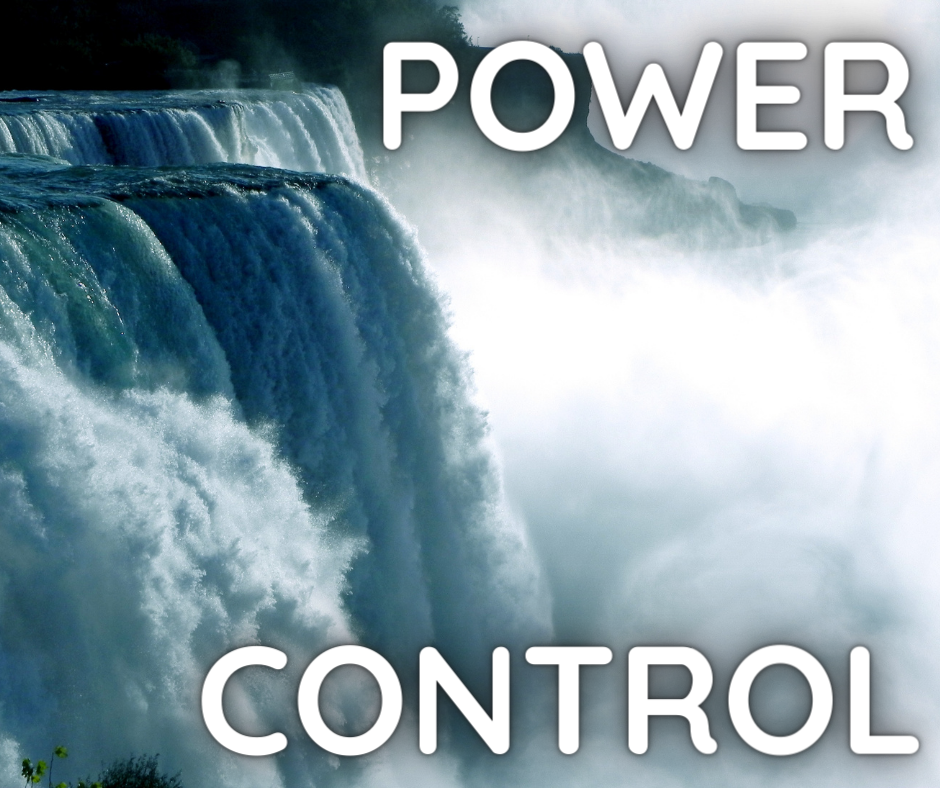
Ever heard the term, “power trip?”
Of course, you have! All of us have seen a power trip in one form or another.
Sometimes it’s funny to watch someone be drunk with power, and at other times, it can be extremely devastating.
This is why it’s important to understand power and control for what they really are.
As a great leader, you have power, and you also have control over yourself and your following (to an extent).
But what is power? What is control?
Since we have them, shouldn’t we seek to understand them, especially if we can risk using them in terrible ways?
Power (in the sense of leadership) is the ability to give and take away.
Control of others (in the sense of leadership) is the ability to tell them what to do and where to go at the time of your choosing.
But you know what’s interesting about these two concepts?
They only work if your followers believe you have them!

Ultimately, they have to believe that you have power over them. Ultimately, they have to believe that you have control over their actions!
This truth is what makes power/control of others so interesting, and so paradoxical at the same time.
…and this truth is exactly what tyranny aims to abolish.
If we go back in time, tyranny was rampant among many kingdoms for one simple reason – it’s part of human nature to want an endless amount of power and control.
Some kingdoms started as pure democracies, but (almost) all of them eventually fell into tyrannical suppression, because it’s human nature to want more and more power.
And yet, even though this is part of our nature, the truth of the matter is simple – no one holds any true power over us!
This means that you don’t hold any true power over your followers/employees. Perhaps you have some power and control over them, but their inner power will always be stronger than anything you impose upon them, good or bad!
Even if you’re taken to jail, you’re still free!
How is that?
Because you are free.
Your spirit is free, your emotions are free, and your mind is free.
Tyrannical forces may be able to control and imprison the body, but they cannot truly imprison our minds, even though they’ve tried in the past!

And, as it turns out, your followers are free.
They may not realize it (yet), but they’re able to give themselves everything that you’re able to give them.
It just takes a little bit of time and effort.
This is the truth surrounding power and control!
We all have power over ourselves and we all control ourselves. We choose to follow the leaders we follow and lead the followers we lead.
Any kind of tyrannical shenanigans will (eventually) be exposed and shown for what they really are – forms of manipulation.
I am not pointing any fingers or making any accusations. However, I often see leaders try to influence their followers into performing actions by offering a chance at a free thing.
It’s one thing to be genuine and upfront about the gifts you give your followers, but it’s quite another to give something away because you’re desperate for control over their actions.
That same desperation is often these people’s downfall. I rarely see any desperate leader succeed in their role because that’s not what a great leader does.
A great leader does not manipulate their followers in an attempt to gain power and control.
If they’re feeling desperate, they certainly don’t spread that desperation to their followers. They simply handle their problems quickly and effectively on their own (or with the support of great people).
You’ll see a trend amongst the great leaders and influencers, and you’ll also see a trend amongst the desperate leaders and influencers; one group has power and control, and the other has much less power and control.

I’m speaking of power and control over themselves, of course.
It’s very possible to gain 100% control over your mind and emotions. And, it’s very possible that once you do so, other people will perceive you as powerful and choose to follow you of their own free will!
Maybe you’re funny, maybe you’re motivational, maybe you’re empathetic, maybe you’re insightful, or maybe you’re everything and more!
Here’s what I’m saying; the more you strive to control others, the more desperation you have. The more you strive to control yourself, the more wisdom you have.
Let’s run through a scenario very quickly to demonstrate why this concept is applicable in real life!
Let’s say I’m desperate to obtain and retain a following. Let’s say I want to be a leader, and that I believe I have to have power and control over others. To top it off, let’s say I’m an online influencer.
Since I’m desperate, I’ll have to do my research and read about how to obtain and retain a following.
Then, I’ll have to put the steps into action exactly as they said I should (because I’m so desperate I have trouble thinking for myself. The “survival state” makes it more difficult to think all around).
I’ll probably choose the “make money online” niche since it’s popular, and I’ll probably fake my inspirational videos since I don’t have any money yet (by using a green screen to show a beach or an expensive house).
I’ll get 20 of my buddies together and we’ll purchase a lambo for a day so we can take that cool picture you see here and there.
Then, as I gain more and more of a following, I’ll write a book that tells my followers how to make more money online, even though I have no idea if my methods actually work!
I’ll make videos that offer to give free things away in exchange for likes and subscriptions, and I’ll buy more and more things that make me look impressive when in reality, I’m just desperate to retain the following I’ve built.
At some point, I’ll realize that I have the power I always wanted, but that it wasn’t worth obtaining it. All of the fake emotions, products, images, giveaways, etc, finally begin taking their toll on me, or I just take the money I have, run away, and invest it if (I’m particularly soulless).
Or…
Let’s say I’m a genuine person who wants to share himself with the world! Let’s say I have full control over my mind and emotions, and that people love me mainly because I am who I am.
Since I’m genuine, I may start a website, YouTube channel, or social media account because I want to inform people and make them feel good! I don’t truly care if I become big or not because I’m having a good time producing content, partially because I know other people will find it funny/interesting to watch and read.
Sooner or later, people begin to look at what I put out there. They laugh, they start thinking, they become more and more engaged.
Eventually, I’ll have a following that’s a genuine following!
I didn’t get it because I manipulated them into thinking I’m awesome. They follow me because they genuinely believe I’m awesome!
Some come, some go. Some stay for a while, some see me as means to an end… Either way, I don’t get hurt by their actions since I never needed to be a leader in the first place!
I never cared about what happens when I don’t have a following because I know I’m going to be 100% okay either way and so will they!
Do you see the difference between the two approaches?

And, this approach towards influencers isn’t bound to just influencers, it’s the same for all kinds of leaders too.
If you’re a manager who needs (is desperate for) the obedience of your employees, they’ll play along because they want to keep their jobs, but they’ll hate you behind your back.
If you do this you aren’t mentally healthy, and you’re spreading that energy to your employees.
This is true even if you’re the CEO of a large company! Your actions (and the energy they’re performed in) ultimately filter down to every single employee, which means that even if you’re disconnected from the day-to-day operations of your company, you aren’t disconnected from the consequences of your actions.
This kind of behavior is to be expected from some people, seeing as we (mostly) don’t teach emotional intelligence in school.
However, if you’re a manager who has realized the truth about power and control (that each individual has power and control over themselves regardless of influence), and if you don’t need the obedience of others, you’re more likely to be encouraging, motivating, funny, empathetic, philosophical, etc with your employees, and they’re much more likely to willingly/happily do as you ask!
And even if they aren’t, you don’t need power and control anyway, so it doesn’t matter if you have to find a better job!
You may be wondering, “if wanting an endless amount of power and control is human nature, how are we supposed to go against that? We can’t go against human nature, right?”
Wrong!
Human nature is described as, “the way we act, think, behave, and do things.”
And, as it turns out, (almost) all of us act in a way that enables our survival!
Logically, it makes sense to want an endless amount of power and control since power and control enable our survival.
However, in the long run, going for power and control over others results in riots, rebellions, quiet revolutions, poisonings, and more, not to mention hatred from your followers.
This makes the want for power and control have a paradoxical outcome… Kind of.
What if we turned the endless want for power and control inwards instead?
What if, instead of looking to control the outside world, we looked for power and control from ourselves?
I guarantee you that your search for inner power and control will result in the kind of power and control you’ve been looking for all along!
I guarantee you that, after you do this to a certain extent, some people will want to follow you of their own free will, and that it won’t affect your mental health/wellbeing if they don’t!

This is a much more genuine method of obtaining and retaining power.
We aren’t necessarily going against human nature (in other words, we aren’t suppressing our desire for power), but we aren’t acting out selfish and corrupt behaviors that negatively affect other people.
We’re simply looking for the power that’s within.
At this point it may seem cliche to “look for the power that’s within,” but at the same time, doing so always yields real, authentic results!
You are able to feel the power that comes from within as an emotional state, and you are able to experience self-control because you’ll be able to control your mind. And if you control your mind, you control your beliefs, feelings, and actions!
Looking for power and control from within has never been a “lost cause,” or “something that doesn’t work,” it’s the best solution for finding what we most desire. The only solution, really.
Tyranny is what happens when we search for power over others, and leadership is what happens when we search for power from within.
With everything said and done, I encourage you to search within for your own, unique kind of power.
The more “personal” power you have, the greater of a leader you will be!
Also, the happier you will be 😉

10• Relieve and Prevent Stress

Okay y’all, it’s time to take a nice, deep breath! We’ll take a break from the heavy stuff for a little while!
A great leader knows when to crack a joke, laugh at appropriate times, and more so that their followers aren’t so stressed all the time.
While this is a very easy ability to cultivate, it’s also extremely important for being a fantastic leader! It’s not too bad for your mental health as well.
I’ll tell you a short story so you can see what I mean!
I walked into CVS today because I wanted to use their restroom… It’s a little embarrassing to use a public restroom at times, but when nature calls, she doesn’t play around!
I washed my hands and began walking towards the door since I didn’t need to buy anything today. As soon as I began walking someone came out of the “Employees Only” door and began walking right behind me.
This guy had a very anxious energy surrounding him. Out of the corner of my eye, I could see a striped, button-up shirt that only the managers wear. I also heard the jangle of keys, so I concluded he must have some form of power there.
After walking very closely behind me, he split off to talk to one of the female employees, saying something like, “I cannot get that video out of my head, thank you for showing it to me!”
As he talked I noticed the energy became even tenser. Her voice wavered as she spoke, and as the conversation progressed, she spoke in 2-word sentences where she could, indicating that he was making her anxious (even though he had the best intentions).
Instead of relieving the stress of his employee, he gave it to her.
This is not how a great leader treats their followers!

You may say something like, “leaders have a lot of stress because of their work, and even their personal lives, you can’t expect them to not be stressed out all the time!”
Leaders do have a lot on their plate, and I don’t expect them to add a “don’t be stressed” prompt on their to-do list. That kind of thing will probably make them even more stressed out, ironically enough!
I do, however, expect leaders to act correctly when they’re under a lot of stress.
Why?
Because if they let their stress get to them, it spreads into their lives and the lives of their followers.
And, as we all know, decisions made from pure stress are rarely good decisions!
However, acting correctly while you’re under stress isn’t easy, even if you know how to act while you aren’t stressed.
The fight or flight response makes it more difficult to think and relieve the stress that we (and others feel)
Because of this, I recommend following the Organize and Conquer tactic (OaC)!
Every leader should develop their ability to organize themselves under pressure, and then act accordingly.
For example, many of us know it’s inappropriate to make somebody else feel anxious with our presence, let alone one of our followers.
However, when we’re anxious and stressed out in the moment, this kind of information often slips our minds.
It’s difficult (for most of us) to think under stress, especially when we’re stressed all the time!
But, this is exactly why a leader needs to do it.
The one thought that should enter your mind when you’re stressed is, “I choose to organize my mind under pressure.”
When you choose to do this, you’ll think of new, creative, and/or effective ways to deal with your pressing problems.
You’ll think of the best order to get things done in, and why it’s the best order to do them in.
You’ll be able to alleviate (at least some of) your own stress in a healthy way, even right there in the moment!

And, this method scales to the top of the leadership chain.
OaC is a simple concept that, when adopted and carried out, helps you organize your plan under pressure and relieves your stress, thereby giving you the energy to act it out!
Chances are, you already have the information you need/want to get everything done in the order/time you’re expected to (or the order/time you want to).
It’s all there, it’s just difficult to access when you’re stressed out.
This is why practicing your ability to organize yourself under pressure helps you make better decisions, and when you make the best decisions, you live your best life.
Once you can (healthily) relieve stress in yourself, you’ll have a better idea of how to relieve stress in others, especially if you know them.
As a side note, you ought to know your followers as much as possible. Ask them questions, listen to what they say, and if you want to be a truly great leader, take notes about each person so you can remember their details for later on!
If JFK could memorize 50,000 names before his death then I believe you can as well 🙂
Even just entering the room without feeling stressed is a great start to relieving stress in others.
And even if you can’t, they will notice if you can organize yourself under pressure or not.
Your followers will pay attention to you when times are stressful. They will notice how you act, how you deal with things, and how you interact with people.
You don’t need to be completely void of stress during these times, but if your followers see that you have a plan, or at least something witty to say, it will make the situation 100× better than it was before!
If you can manage to have no stress during a stressful time, congratulations! You’ve successfully become a legendary person!
At this point, any kind of interaction with a stressful follower will come naturally, and they will appreciate you greatly for it.
This is the ultimate goal of the OaC concept; once you pull your mind together under pressure enough times, you will not feel stressed even when times are (supposed to be) extremely stressful!
You may even begin to wonder, “why was I stressed out to begin with?”
And, you don’t have to throw yourself in the fire to begin with. You don’t have to make yourself stressed out just so you can overcome it, and potentially traumatize yourself in the process!

If you’re like me, you’ll build this ability inside of video games first before taking on more responsibility in the real world!
I used to fight extremely difficult bosses in RuneScape so I could train myself to think clearly, accurately, and quickly while I was under a lot of pressure.
It didn’t always work out so well, but I was happy to lose virtual gold over real gold any day! And eventually, it did work! I developed a very useful skill that I use almost every day of my life.
If you aren’t into video games, I recommend picking a task that’s challenging for you, but not too challenging at the same time.
It’s very possible that your life is challenging enough already, and that you can start practicing this skill today!
Will you remember to organize your mind the next time you’re under pressure? What kinds of plans will you form? How will you tackle the difficult things in your life? How will you, eventually, never become stressed ever again?
The choice is yours!

11• Create, Organize and Carry Out Fantastic Goals

Every leader in history up until the present day has had at least one thing in common;
They all had goals, and they tried to achieve them!
How do I know this?
Because every single person ever had goals they wanted to achieve!
For many people, their goals were simple; survive. Sometimes it’s “survive and have a good time.”
For great leaders, however, these kinds of goals simply aren’t enough.
If you were a king or a queen, for example, one of your goals is to provide for your kingdom.

This breaks down into a series of mini-goals that have to be up kept at all times (make sure your subjects have food and water, make sure they’re content, make sure no robbers or thieves steal from the people, etc).
If you’re a business owner, one of your goals is to upkeep and expand your business.
Once again, this breaks down into a series of mini-goals that have to be accomplished on a timely basis so the larger goal can be reached (paying your employees on time, making sure you’re providing valuable products, making sure you have inventory at all times, making sure you have excellent customer service, etc).
But let’s step back for a bit.
Anyone can create a goal, and many of us have what it takes to achieve the goal. That’s not the hard part.
What is the hard part, you might ask?
Creating and carrying out an amazing goal!
Or as I like to call it, a great goal (GG).
It’s (usually) extremely difficult to create a fantastic goal as opposed to a mediocre goal.
And yes, I say “goal” because even creating 1 fantastic goal is much, much harder than creating 10 mediocre goals.
But, let’s step back even further and ask ourselves another question. “What is a goal, exactly?”
A goal, as defined by Webster’s dictionary, is:
“The end towards which effort is directed.”
So, what is a great end state? What does an absolutely amazing end state look like?
For many people, their goals consist of 1-5 factors. “Survive, make more than I spend, have a good time, don’t mess up my relationships.” Or, “survive, run my business, encourage my employees, don’t mess up my relationships.”
A great goal, however, has 10 or more factors that come together and make it an incredible goal!
The quality of these factors matters as well.
If we stuff 10 mediocre factors together, it’ll just be a more complicated mediocre goal.
However, combining as many quality factors as we can provides us with a great goal, and as soon as you. begin acting towards a great goal, you are acting like a great leader.
Never sacrifice quality for quantity. Strive for both.

Perhaps you’re wondering, “what does a great goal look like, anyway? What is the perfect end state to achieve?”
While the answer(s) to these questions are surprisingly subjective, there are some objective factors we should consider when we’re crafting a great goal.
-Survival. If your goal does not include survival for yourself and others, then it is not a GG.
This goes for short, medium, and long-term survival!
-Mental Health. Your “end state” should include where you want your mental health to be once it is reached! The healthier “end state” you envision for yourself and others, the greater your goal will be.
-Survival of The Environment. Logically, if a goal contradicts or goes against the survival of the planet, it is not a great goal. We kinda need air, food, and water to make it.
Besides these factors (which are objective 99.9% of the time), there are other factors you may need to check out and add to your GG!
For example, are you physically healthy? If not, can you change it? If so, add “become and stay as healthy as possible” to your great goal!
Is there a specific person in your life you’re taking care of (besides yourself)? You could add something like, “care for this person as best as I possibly can and improve my ability to care for them every day” to your GG.
Do you want to become more disciplined and productive? Add certain time blocks to work within (for example, 2 hours with a 15-minute break), and keep going until you can consistently work within those time blocks!
Also, what time frame do you want to achieve your goal in? Is a time frame too stressful to adhere to right now, or is it going to help you?
Whenever you’re creating a goal, you want to think of the best possible end state for you to achieve. What is your version of heaven? How would you like the world to be if you had your way? Make it a part of your great goal to create your version of heaven on earth!
Personally, one part of my GG is being as introspective as I possibly can and sharing how being introspective can be extremely fulfilling.
There were so many qualities, emotions, and forms of behavior I wanted to learn from others, so I studied them and hoped to pick up a thing or two here and there.
However, as soon as I realized that these qualities (confidence, humor, love, empathy, etc) could all be found/developed inside of myself, I began looking there as my main source of power.
It’s been extremely helpful to look within myself and find a kind of peace that’s rare to find in this world. It certainly encourages me to stay away from bad goals and to embrace the great ones!
I encourage you to add “go deeper into my inner world every day” as part of your GG, as this will produce an amazing end state that takes the place of 1000 mediocre end states!
Once you have 10 quality factors that are all a part of your GG, I encourage you to analyze them and ask yourself, “are these the very best factors I could possibly create?”
Often enough, we become better at creating things the more we create them.
So, if this is the very first great goal you’re crafting, odds are you’ll surpass it when you craft the next one!
If you look at how you’ve done so far, there are parts of you that may say, “look at this over here, that can be improved. Look at that part over there, that can be improved.”
Creating the goal is half the battle. Going back, analyzing it, and improving it is the other half!
It can take time and practice to improve a GG, especially if it’s your first one. This is why I want to share mine with you, I want it to be a reference to the one that you’re creating!
I encourage you NOT to adopt this for yourself. I have carefully crafted it to fit me as a person, and I do not know if it’s the best goal for you. I simply want you to use this as a reference for your own GG, just in case you want it!
My great goal is:
-To survive cohesively with other people and the earth.
-To make a living being as informative, loving, positive, and humorous as I possibly can.
-To constantly search deep within my inner world and share my findings with others.
-To develop my intelligence, confidence, passion, and my ability to love.
-To learn as much as I can from my dreams, to have a lot of fun in my dreams, and use them as tools to look into my subconscious.
-To be as physically, mentally, and spiritually healthy as I can.
-To be as informed, empathetic, and understanding as I possibly can.
-To prevent and handle negative/unneeded confrontations in the best way possible.
-To guide others towards their best selves in any way I can.
-To have a variety of different relationships and to make them the best they can be.
-To feel absolutely no fear and no stress overall.
-To disidentify from every single one of my corrupt and detrimental beliefs/thought processes.
-To process and heal myself from my suppressed trauma.
-To develop every single quality I urge myself to develop.
-To be as integrated and mature as I possibly can.
Some of these things I’ve already obtained, and some of them I’m still working on. However, everything you see above covers everything I want to develop for the sake of myself others.
When you create your own great goal, and when you analyze and improve it, the next step is simple; you act it out!
Since these kinds of goals are complicated to live by, I encourage you to NOT feel dissuaded if you fall short a few times. I encourage you to pick yourself up, brush yourself off, and keep going. You’ll always do much better than you did last time!
Once you have a GG and you begin acting it out, you are officially a great leader! You may want to keep in mind the other tips we talk about in today’s book article, though 😉

12• Be Encouraging, Motivating, and Inspiring

Many people find themselves in positions of leadership because they are motivating and inspiring! Lots of people enjoy these people’s company because they make them feel like they’re ready to seize the day!
However, if you aren’t a Type A or B dominant, it can be difficult to consistently motivate your following.
Sometimes, it can be difficult even if you are a Type A or B dominant! For example, I’m a Type A and B dominant and I still have trouble encouraging others from time to time.
Thankfully, this is a skill we can develop with time and practice. Or, rather, it’s a certain kind of attitude that we cultivate and certain kinds of words that we say, combined into a synergistic union!
It’s possible to know exactly what to say (“I encourage you to stay awesome”), but not be in the energy that gets other people motivated and hyped up.
On the other hand, it’s possible to be in the energy that’s motivational by nature, but say the wrong thing at the wrong time (“chicken striiiiips!”).
Both the correct energy and the correct verbiage should be conveyed together to be encouraging, motivating, and inspiring.
Since that’s the case, let’s break it down into smaller chunks and see what this skill is all about!
-The Energy

Psychologists from the beginning of time have known that people’s emotions are contagious!
If we can walk in and feel the energy of the room, we can feel the energy emanating from another, singular person.
So, then, the idea is to be emanating a kind of energy that people (your followers, specifically) find encouraging and motivating!
The kinds of energy that people find the most encouraging, motivating, and inspiring are confidence, enthusiasm, passion, optimism, and love. Combining all of these energies together isn’t difficult, and in doing so, you’ll become a walking motivational machine.
But let’s not get ahead of ourselves here. How do we even choose to be even one of these things in the first place?
For example, how do we choose to be enthusiastic if we don’t feel enthusiastic?
This is where mindset comes into play.
Remember 15 years ago when we talked about confidence in tip #2? We discussed how it was mindset first, then emotion, then the emotion becomes energy for action!
That’s exactly how we develop enthusiasm as well!
If we tell ourselves, “I choose to be enthusiastic” or “I choose to feel enthusiastic,” your emotional state will change from whatever it is into enthusiasm!
Granted, this may take some time (and some consistent repeating of the belief), but this is how we genuinely develop a new quality/emotion from within.
Then, you add the other emotions we mentioned above, and you have a belief that looks like this,
“I am confident, enthusiastic, passionate, optimistic, and loving.”
You can copy and paste this belief, put it in your notepad, stare at it for 2 hours and repeat it in your head if you’d like.
The more you repeat this belief, the stronger it becomes!
And don’t worry, you can always change your mind later if you find something better for you to believe.
Mindset first, then the emotions follow. The emotions then become energy that we use for action!
-The Words

Now that we’ve developed the energy from within, the next step is words and timing.
As soon as you feel confident and humorous, timing your words becomes second nature. Rarely do you have to stop and think about timing when you’re acting from any of the emotional states we mentioned above.
Saying (and remembering) the right kinds of words, however, can be much more time-consuming if we’re starting from ground 0 (like I did).
Here are some things you can say when your followers could use some encouraging, motivating, and inspiring words (preferably in person):
-“Overcoming your greatest hardship is your greatest success!”
-“You don’t need me for motivation, I’m just here to help!
-“I notice you’ve been acting down lately. Is there any way I can help?”
-“Hey (name), I’m glad you’re here!”
-“Hey (name), thank you for coming, I really appreciate it.”
-“You’re brighter than you know.”
-“I’m sorry you’re going through XYZ. I’ll remind you that you’re powerful and that you’ll get through this.”
-“Thank you for showing me XYZ earlier, it really made my day.”
-“Keep it up, you got this!”
-“I trust you to do this for me. I have faith in you. Okay?”
-“Have a great day!”
-“I know it’s stressful right now, but I need you to do XYZ for me. We can’t do this without you!”
-“I want you to feel inspired for the rest of the day. Can you do that for me?”
-“You have the power to encourage, motivate, and inspire yourself!”
-“The day will become well before the sun sets.”
-“Nighttime means a good day has passed.”
-“Do tell me, where can I find that radiance?”
-“So, about XYZ that happened yesterday. Did it make you stronger?”
-“Tell me what’s wrong. I’m listening!”
I created all of these sayings on the spot, so feel free to use them however you’d like 🙂
The reason some of these sound so cliche is because they’ve been used and overused many times before.
But of course, there’s a reason they’ve been used many times before!
It’s because they’re genuinely uplifting when they’re said in the right energy!
Even a simple, “have a great day” is an incredible motivator when it’s said in the right energy.
I feel like I would be holding out on you if I didn’t tell you how to come up with these phrases yourself.
I can give you things to say all day, but if you cultivate the skill of saying the right things at the right time, you’ll never be at a loss for words ever again!
Once you’re in the right energy, observe your environment. What is the context? What is the setting? What is your position amongst the other people who are there?
Then, rack your brain for the knowledge you have about the people you know. If you’re a manager who knows their employees, this is an easy task. If you’re an online influencer, it’s impossible to know each follower individually, so you’ll have to keep in mind some general information about them.
Then, practice! Say some things that you think would be encouraging to someone who is in the context/situation they’re in. If a question is more appropriate, ask a question.
With enough practice, you’ll have mastered the skill in no time!
You can also begin practicing with yourself!
Be somewhere by yourself, and notice your surroundings. Notice the general context and situation you’re in.
Then, in a confident/enthusiastic energy, say what you think is the right thing to say! Keep going until you can upkeep a constant stream of encouragement and motivation within yourself, then you’ll feel more confident to encourage others.
Once you build this skill to a certain point, people begin to respond in the best way they possibly can, and it creates a snowball effect, only with positive energy!
The more positive energy you can create and maintain, and the longer you can maintain it, the greater of a leader you will be.
Well, this is (almost) the halfway point! I hope you’ve been taking some breaks here and there because this is an absolute monster of a post!
If you’d like a break right now, I’ll give it to you. I encourage you to grab some food, grab some water, and process the information you’ve read about so far!
Are you ready? Okay! Let’s continue!

Hey there! Do you need some motivation to finish this post? Why not check out NLP’s master course that teaches you how to motivate yourself! I bet you’ll love it 😉
13• Become Highly Skilled In Your Niche

A lot of the things we’ve been talking about have been about mindset. Beliefs, emotions, qualities, and more!
While mindset is definitely important to pay attention to, it’s also important to be highly skilled in the area in which you lead!
For example, if you own a construction business, you should be very good at construction. If one of your guys doesn’t show, you should be able to step in and work harder than anyone has before!
If you’re a leader in the CBD industry, make sure you’re able to do all of the things required to maintain your business and make it expand.

I just got done watching two people who are very skilled in their niche of choice, and I must say, I was thoroughly impressed! I’d definitely consider them leaders of their niche just because of how high-level their performance was relative to others in that same niche (and honestly, relative to others who are in other niches as well!).
Being a leader is more than being skilled at doing the things you have to do, of course. Doing them in the right energy is important as well!
I’ll gladly watch a confident, enthusiastic leader perform their tasks over an insecure, unpassionate leader perform their tasks.
A lot of leaders today are insecure for one reason or another, and since they’re not confident, they’re missing a vital aspect of what leadership is all about.
But, back on track. What if you wanted to be better at the tasks you have to perform to be a leader? How do you go about doing that?
While each set of tasks is different for each leader, I recommend using the Orient, Plan, and Practice tactic.
We’re using this tactic so we know what we should be doing within our niche, and so we can know what we need to practice!
OPP works a bit like this:
–Orient yourself so you know which tasks have to be completed, in which order, and at which time.
This is the stage where you can write down a list of things you need to do!
You can then decide which order the tasks will be done in (according to deadlines, priorities, etc).
–Plan out how you’re going to accomplish these tasks.
Will you do them all in 1 hour, or 12? Are there any shortcuts you want to write down now so you’ll remember them later? Are there any additional notes to add?
The planning stage is all about setting a direct path for yourself (and even specific time blocks) for doing the tasks you added in the orient stage.
–Practice, practice, practice these tasks!
Some tasks are completed once, some are completed once every few days, weeks, months, etc, some are repeated over and over and over again!
If you set a plan for one day, follow the plan for one day, then repeat the process. If you set the plan for one week or longer, continue with it and check on it once a week to make sure everything’s updated and true to what’s happening in real-time.

If your plan is longer than 1 week, always consider a better way to do things just for the sake of it; nothing will get you nowhere faster than a malformed plan!
The practice part is what often drives people away. Most of us see practice as something that isn’t very fun. It can be dull, boring, and frustrating at times for sure.
Personally, I fall victim to this. Sometimes I sat down to practice my fiction writing and sigh on the inside. “Oh great, time to write another story that isn’t good enough.”
And you know what? People read them anyway!
Besides that, I got better every time I wrote a story or read an article, and that was the most important part to me.
I have a pro tip for you if you have a lot of monotonous, boring practice ahead of you,
Embrace the pain and build that discipline!
This advice works very well if you’re practicing sports or you’re pushing yourself to the limits on the bench.
However, it also works well if you’re a writer, graphic designer, SEO expert, etc!
When you embrace the pain of “I don’t want to do this,” something strange happens.
You begin to realize how silly it is. You begin to realize that you can feel the pain, keep working, and that everything is going to be okay.
If it’s real trauma that comes to the surface, it’s always okay to step away from what you’re doing and heal yourself!
Since you’re a leader, you may even grab ahold of yourself and stop the negative inner dialogue altogether!
After all, it’s your energy that’s going rogue and telling you to stop practicing.
Perhaps it has a good reason for doing so, but nonetheless, it’s time to put an end to it!
Approach it with the attitude of an alpha, like how we discussed before. Ask this part of yourself, “why are you saying these things? What is the reason?”
You’ll receive an answer, and after you receive the answer, it’ll be much easier to address the core problem(s) generating the negative thought patterns, validate the part of yourself that’s telling you to stop practicing, and lastly, disidentify from it.
After that, you can fully integrate it back into your life, and then you’ll have full control of the archetype!

This may sound complicated, but don’t worry, it’s a process that works when it’s done properly!
And, once you give it a try or two, it won’t be as complicated as it looks.
It can even be fun to pay attention to the parts of yourself that you don’t normally pay attention to, and it’s especially useful when they point something out to you that you wouldn’t have otherwise known about!
The reason I’m going so in-depth into this is because becoming highly skilled in your niche is (most likely) going to require some form of practice towards monotonous, tedious, and dull task(s).
While you’re practicing these task(s), different parts of you may try to grab your attention since they want to tell you something.
Instead of suppressing these parts of you, pay attention to them before going back to work. Follow the process I outlined above, and you’ll become more healed, integrated, and disciplined as a result.
Are you ready to take on the challenge? I know you are! Good luck!

14• Know How To Think, Speak, and Write

Learning how to think

We’re living in a world that values thinking, speaking, and writing than ever before!
More written text (on and off the internet) exists today than at any point in history, and it keeps going up!
Books, articles, classes, informational pamphlets, and more are being published every single day. It’s hard to deny the power of thought, speech, and writing in today’s time.
Also, this skillset is universal to every kind of leader across the broadest spectrum possible! It doesn’t matter what kind of leader you are, or in what niche you lead in; if you know how to think, speak, and write, you’re a much more competent leader than those who cannot!
However, be aware that not all minds are created alike.
Some people have a natural bent towards social intelligence. Some people are very intelligent when it comes to physical things, a lot of my friends are this way. Some people have a “revolutionary” kind of intelligence. You get the idea.
However, there is a certain kind of “way” to think called Leader’s Intelligence. No, I didn’t just make that up… I would never 😉
When someone possesses Leader’s Intelligence, they’re thinking in the style of a leader (as opposed to the style of a revolutionary, for example).
While this mindset is usually developed (like a skillset), some people are born thinking this way.
If they think, act, and feel like a leader from birth, we like to call them natural leaders.
Keep in mind that you’ve (probably) already picked up enough knowledge throughout your life to be able to think, speak, and write properly!
Being able to do something is no substitute for consistently doing it!
If what I’m about to say resonates with you, and you want to start thinking this way, don’t let me stop you!
LI is fairly simple to start developing!
Thinking like a leader is largely centered around the well-being of you and your followers.
Therefore, a question a leader often asks themself is, “how can I make my situation and their situation better than it already is?”
Once they run through some possible options in their mind (sometimes after asking for advice), they’ll decide what the next possible options are.
Once they have firmly decided what to do, they’ll use their intelligence to organize themselves (and their team, if need be) so they can make the situation better for themselves and their followers.
This question often arises in a leader’s head not only spontaneously, but when something is wrong as well.
A great leader’s mind is always geared towards improving the situation for themselves and others, so this is (often) something that happens naturally.
One of the most important aspects of Leader’s Intelligence is the spontaneity and frequency of the decision to improve their situation and the situation of their followers.
This question frequently appears in their mind so long as they aren’t busy performing tasks and whatnot.
When it does, they really think about what the next step is, and how/when they can put it into action!
Some leaders are so in line with Leader’s Intelligence (which works best as an add-on to the kind of intelligence you already possess) that this process happens automatically, all the time!
Besides acting out this particular question, great leaders also use their intelligence to organize events, keep things running smoothly, look out for the wellbeing of others, and more (like the things we’ve been previously talking about in the post).
Learning how to speak

While writing and speaking are very connected to one another, they are (often) considered two different skill sets entirely, both of which are considered crucial to being a great leader!
The way that you speak is different depending on what kind of leader you are and which niche you’re leading in.
Are you the serious and heroic type? Then speaking in a well-constructed, informative, and passionate way is an amazing option for you!
Are you the firey, actionable type? Then being yourself while developing your mind is a great option for you (since you likely already know how to speak)!
Are you emotional and quiet? Then speaking in a formal and slightly humorous tone will probably suit you best!
In other words, claim your speaking style(s) based on who you are/who you want to be as a person!
Do you feel like you want to improve your speaking skills? I can understand where you’re coming from since I had to do the same thing! I could always write very well, but “words had a long journey going from my head to my mouth,” as I liked to put it.
If you want to improve your speaking skills, here’s what you can do:
–Write down something and say it out loud with nobody around.
At the same time, don’t worry about being bad, messing up, or not liking the way you speak – the idea here is to simply practice, not become perfect on day 1.
Day 1 is all about just practicing, and we can strive for perfection on day 2.
–Play with your voice box. While this may seem silly the reason behind it is very simple – you want to figure out which tone of voice is most comfortable for you to speak with on a general level.
For example, I always spoke with a higher tone of voice when I was younger because I had massive anxiety issues.
After playing with my voice box a bit I decided I would keep the higher tone of voice for when I was surprised and enthusiastic, and handle more serious affairs with my lower tone of voice.
Playing with your voice box also helps you achieve the next point, which is perhaps the most important of the 3.
–While speaking, fluctuate your voice so that each sentence flows properly.
Let me be clear with what I mean; I’m not referring to flow in the spiritual sense (“everything just flows, don’t you know?”), but rather in a musical sense.
Every (good) song has a particular flow, a pattern, a tempo, a progression of notes that feels good when we hear it because it flows properly.
You can make your voice sound like music with enough time and practice. Timing, tonality, context, tempo, and patterns should all be taken into account here when we're fluctuating the flow of our voice! Share on X–And lastly, find out what you have to do to improve your speaking skills.
Ask yourself what you ought to do instead of reading my advice! I don’t know your individual situation as well as you do, so if you practice the tips above and you aren’t getting the results you’d like, consult yourself and find out what the next step is.
Learning how to speak is usually quite simple in concept, and it just takes a bit of practice!
Thankfully, we have the internet, and we can observe many great speakers across time such as Martin Luther King (and MLK Jr.), Abraham Lincoln, JFK, and many, many more!
You can also speak in multiple different ways if you’d like! Some ways are better than others, depending on the context and situation.
For example, speaking in a formal tone won’t be very appropriate in a casual setting, but it’s (usually) very appropriate for a funeral.
Speaking in an inspirational way won’t be very appropriate when someone is sad (in need of empathy), but it’s very appropriate when a difficult/stressful time is about to come.
This is why I recommend developing multiple different kinds of speech, especially the ones that feel like they’re out of your comfort zone. These ways will vary from you to me, but you can learn to speak in confident, informative, entertaining, passionate, motivating, formal, informal, humorous, and loving ways!
The possibilities are endless, so I recommend finding/creating/combining/practicing multiple styles of speech so you can say the right things, at the right time, and in the right way.
All of this will definitely give you some great leader points!
Learning how to write

Nowadays, if you can write it, you can make it your reality! Perhaps that’s how it has always been.
Research on how to become a better writer!
Even though there are many different writing styles and many different reasons to write, some tips can be applied across (almost) every category, such as:
-Write down what you want to say. Then, figure out how to say what you want to say in a better way. Write that down. Do this 3 times total!
-Get in the habit of writing to be yourself, inform, and/or entertain. Normally, writing just to inform or just to entertain doesn’t work well in getting a message across, and great leaders rely on being able to get their messages across (and conveying who they are).
-Practice, practice, practice. Do it badly at first! It’s okay to start while being absolutely clueless! Once questions begin to pop up, answer them, and apply the answers into your writing. This is how to improve your writing skills!
Write down your plans with excruciating detail. Write your followers often, in any form you choose to. Practice your writing in private until you become the best writer you know. Take classes, read articles, educate yourself on how to write, and practice for long as you possibly can!
I’m greatly stressing this because you cannot be a leader (let alone a great leader) without knowing how to write effectively, and in many cases, without writing quite often.
It is such an effective form of communication that it simply cannot be pushed to the side and forgotten about!
It’s very possible to become a leader simply because you know how to write! For example, many people become leaders of their niche because they do/did their research and start blogs/write books about it!
If communication is powerful enough to begin your journey as a leader, imagine how important it is to sustain your position as a leader!
Anyone can write nowadays, but being able to write effectively means keeping in mind some key details, sharing enough details so your audience knows exactly what you’re trying to say, and more.
This is why I recommend reading Grammarly’s article on the 4 types of writing!
Their article gives a clear and concise description as to which style is which, and that every piece of writing falls into either of these 4 categories.
Perhaps you’ll want to think, speak, and write exactly the way you want to, thereby combining all 3 into a loving unity? That’s up to you! 🙂

15• Know Your Worth and The Worth Of Others!

Often enough, I see people step into the leader’s role exactly when they realize their own worth and the worth of others!
Sometimes they have to cultivate a sense of worth, but when they do, it becomes very obvious (to them) that the worth of themselves and others is far more than they ever expected!
A big part of being a great leader is giving your followers an idea of how much they’re worth!
So many people are insecure, afraid, sad, and angry because of how their life has played out (up until this point). So, so many people don’t have an idea of what they’re worth, and it’s your job as a leader to tell them exactly that!
But on the other hand, I see many leaders who don’t have a sense of what they’re worth, and therefore, they are unable to give it to their followers.
So many leaders haven’t developed a sense of self-worth that it’s mind-boggling to me… That should definitely change, and fast!
Why is this so important, exactly? And how do we know what we’re worth?
I’m glad you asked 😉
Please let me give you an example as to what your worth is not truly determined by.
It is not determined by;
-How much you do.
-How much money to have.
-The quality of your job.
-The quality of your family and friends (especially how others see them).
-Any skills you do or don’t have.
-The things you do or don’t think, say or write.
…and a lot more!
My point is that your worth isn’t determined by anything, even though many people would be happy to tell you it is.
You have an intrinsic, inner worth that exists literally because you are alive!
That’s the only requirement you have to meet to feel your worth!

Why do I say this?
Because it’s true, and because many people lie to us by saying “you’re not good enough” in one way or another. Or, in other words, “you aren’t worthy.”
Corrupt bosses and leaders love to do this, as do low-vibrational people who actively believe they aren’t good enough.
It’s truly stunning how many people succumb to the belief that they aren’t good enough, even if it happens subconsciously.
All kinds of people feel this kind of “chronic shame” that is reinforced everywhere they look (because everyone they know feels the same way)!
But, it doesn’t have to be like this.
We can understand and feel that we are truly worthy simply because we are alive!
If you want to get down to the nitty-gritty of it, this feeling is produced by the serotonin molecule.
This molecule is also responsible for us feeling confident, relaxed, self-assured, and (surprise, surprise!) like a great leader.
It’s important to know (and feel) your worth because of this one, fundamental fact:
Your knowledge and emotions spread to others even without you even doing anything!
You display your knowledge in the clothes you wear, the way you speak, the way you perform your action, and much more.
You display your emotions simply by having them since your emotions can be sensed by other people!
This is partially why emotions are a big theme right now in America. Hurting someone’s feelings means you’ve hurt that person, but it also means you’ve hurt yourself, and many other people (for as long as the hurt person stays hurt).
Thankfully, the opposite is true!
The more we feel worthy and the more we do our best to “project” this feeling onto other people, the more positivity they feel, and the more positivity you can make someone feel, the greater of a leader you are. It’s almost a direct equation!
This leads to the next question: how do we know what we’re worth? And (perhaps more importantly), how do we know what others are worth?
If you feel worthy, this question is automatically answered for you! You feel how much worth you have and you understand that you don’t need to feel any more of it because you’re simply aware of your worth!
However, for many of us, insecure thoughts, beliefs, emotions, and more get in the way of answering this question.
For me in particular, it took 3-4 years of constant subjective work to overcome these negative beliefs, simply because there were so many of them (and because some of them were very intense).
I could feel my worth by the time I was 21, but it was often in fleeting bursts that lasted anywhere from a minute to an hour.
Nowadays, I feel worthy for as long as I please!
However, I have faith that it will not take so long for you to cultivate this sense within yourself. And once you do, you’ll experience the answer to the question yourself!
As for my answer…
I experience my worth as something endless, something positive, something that feels very good!
I associate it with the color yellow and I feel it in my solar plexus. Even though I have enough of it, sometimes I decide to build even more just for the heck of it!
The information above may help you if you’re attempting to seek (more) self-worth, especially as a reference point to what you can expect to feel (and where)!
Now for the best part of this tip: how exactly do you feel your worth?
How do you go from not feeling your worth to feeling it permanently, and whenever you want?
I’ll discuss this in-depth in my upcoming book where we talk about how to obtain and retain positive power of all kinds!
But don’t worry, you don’t need a book to tell you how to feel your worth, and I’ll prove it by telling you a simple truth:
You decide to feel your worth!
That’s it! Get up every day and consciously decide to feel your self-worth for 1 month. Do this consistently every morning as you wake up. Don’t miss a day for anything!
You can say things like, “I choose to feel my intrinsic worth!”
“I choose to feel worthy!”
“I choose to build my self-worth!”
Your mind may resist the message at first, and if it’s particularly sassy, it’ll tell you things like, “this isn’t going to work, why even bother?”
“That guy on the internet didn’t know what he was talking about. It obviously isn’t working!”
“Don’t lie to yourself.”
These kinds of thoughts are the ones that made me dive into the rabbit hole of my mind so I could overcome and transcend them.
Thankfully, however, you don’t have to do this if you don’t want to.
Just keep telling yourself the positive messages until it completely swallows the part of your mind that says these kinds of negative things!
How long does this take? It’s different for everyone, but for you, I recommend doing this for a month to start, then as the doctor prescribes (which would be you!).
Keep in mind, though, that this part of your mind will not simply “go away” because you overshadow it with positive energy.
It will likely stay there until you consciously decide to start the individuation process.
But, that’s for another article!
Once you know and feel your worth, you’ll find it very easy to make others feel the same.
While fear, anxiety, and sadness are (often) strong emotions, they all have a “weakness” to confidence and self-worth.
This means that approaching a sad/angry follower and reminding them of how much worth they have (while acting in the energy of self-worth yourself) will be very effective and very effortless.
Combining this with the last point (learning how to speak) will give your follower the confidence they need to move forward!
How will you decide to feel your intrinsic inner worth? How long will you persist until you feel as worthy as can be? How will you decide to share how worthy your followers are?
It’s all up to you! 🙂

16• Know How To Make Tough Decisions Properly

What does a tough decision look like for you?
Does a big purchase count as a tough decision? What about hiring someone, or letting someone go? What about signing a contract you’re on the fence about?
Tough decisions are often very, very stressful and it can be difficult to know whether or not you’re making the right choice in the moment.
There have been many times when I believed I was making the correct decision only to be met with the exact opposite of what I wanted.
Then I’d kick myself for a while. “Why did I do that? I should have made the other choice instead!”
It can be easy to know in retrospect but difficult to perceive in the moment.
Thankfully, many tough decisions don’t need to be made on the spot!
Buying a new car, a new refrigerator, taking your business in a new direction, trying something new with your followers… You can sleep on these things 99% of the time, and that means you can make a good decision while you aren’t under a lot of pressure.
Still, though, it’s important to know how to properly make a tough decision, even if you don’t have to make one in a split second.
Even more importantly, it’s a great idea to know how to make tough decisions ahead of time so that tough decisions that have to be made in the moment will turn out to be great in the long run!

But first, is there an objective definition of a tough decision?
Hardly, you have your personal preferences and I have mine! What may be a tough decision for me may be a very easy decision for you.
However, some common themes stand true for most (if not every) tough decision, including:
-Money and employment. A big financial purchase can be a tough decision, especially if one party says yes and another says no.
-Quitting and starting new jobs are often considered tough decisions, as are hiring and firing employees.
-Decisions that determine the financial future of yourself, your family, and your business are often considered tough decisions.
-Friends, loved ones, and relationships. It can be a tough decision to let someone go, or even to bring somebody new into your life!
It can be a tough decision to make new friends, especially if you’re trying to make a different kind of friend than you usually do.
Perhaps you don’t enjoy spending time with your family for one reason or another. You may love them, but you can’t be around them anymore. Perhaps they left this world and it’s a tough decision to let go of the grief that you hold.
-Life-changing decisions about yourself are almost always considered tough decisions, whether you’re moving, changing careers, starting a business, or anything else you personally consider life-changing!
Many people find these kinds of decisions hard to make, but let me ask you something:
What are the tough decisions you’re facing in your life?
Do they involve yourself? Your family? Your children? Your followers?
Who is affected by this change and why?
I encourage you to write them down on a piece of paper. Alternatively, you can write them down on your device’s note app, Google Docs, Word, etc.
Once you write them down, I encourage you to play out what would happen if you chose every option available (assuming you don’t have 100 possible options to choose from or anything crazy like that).
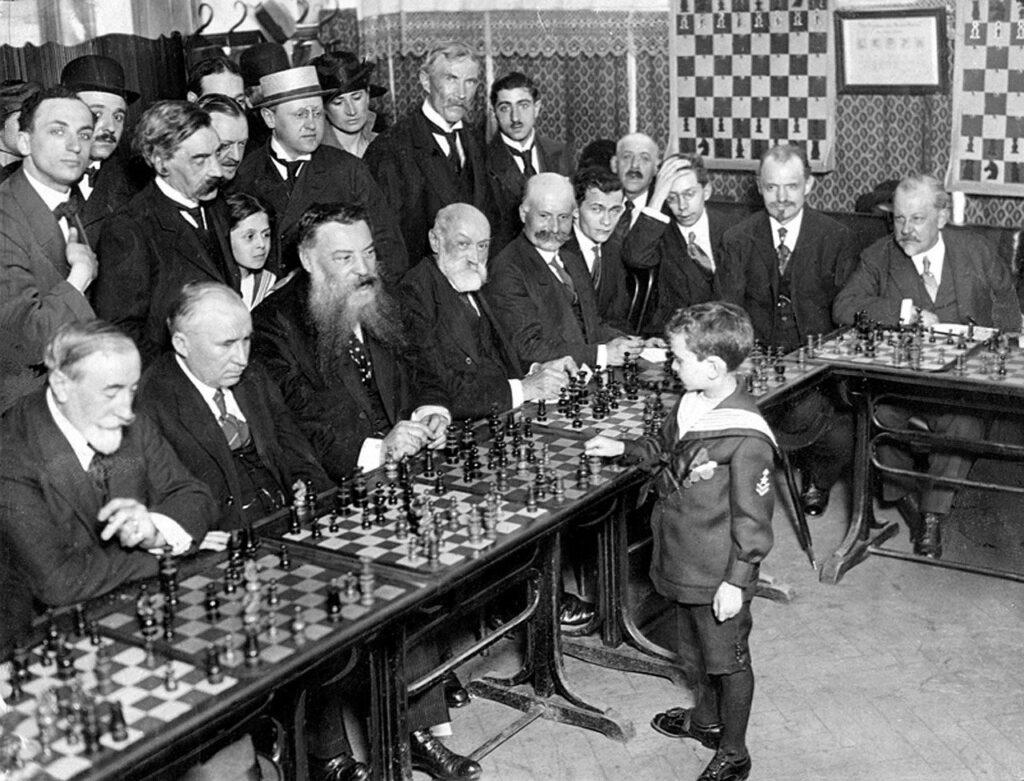
For example, let’s say you’re about to buy a new car.
In your mind, play through what would happen if you bought the car, then play through what would happen if you don’t buy the car. Go through both of the routes in your mind and ask questions about what would happen should you say yes or no.
Do you need it, or do you want it? If you don’t buy it, what else could you spend your money on that would help you even more?
Have you considered buying a cheaper car to save some money, or is this car the only one you’ve looked at?
What would happen if you bought a cheaper car? Better yet, what would happen if you bought a more expensive car?
Look into the long-term consequences that your decision will give you, whether they be positive, negative, or neutral.
If you’re making a tough decision, it’s important to know where you stand morally as well!
Do you know something’s right but feel it’s wrong? Does a decision look amazing until you read the fine print that says, “your soul belongs to us now?” Do you believe you can give your underperforming employee a big push in the right direction?
Using these questions and more, project what your life will be like in 10 years if you make this decision, as well as the lives of everybody involved!
Back then, kings and queens had to create a self-sustaining “ecosystem.”
Each subject had to provide his or her worth so that the entire kingdom could survive, and the king and queen were responsible for making the decisions so that everyone could continue onwards into the future.
Since you are a great leader, you’re equivalent to a king or a queen in the sense that your (tough) decisions affect yourself and others around you, especially if you’re making a business-related/follower-related decision.
So, looking into the future and figuring out (approximately) what the future will look like when you make this decision is a crucial thing to do!

Does the decision lead you towards the GG we made earlier in the post? Or does it contradict it?
If the decision you’re about to make isn’t in alignment with your greatest goal, you (probably) shouldn’t make it!
Once you’ve answered these questions to the best of your ability, and once you’ve decided where you morally stand on the issue, you can decide whether or not your choice is in line with the GG you created.
If it is, then you can make a decision and be very confident that it’ll be best for you and your followers in the long term!
But, what if you have to decide in an instant?
What if you have a split second to make a decision that will alter the course of your life forever? What then?
Perhaps this has already happened to you in the past, perhaps it may happen in the future.
I’m not going to jinx anything, but I do want you to be prepared for big moments like these!
One of the best ways to be prepared is to practice making “mock tough decisions” before the real one actually comes!
On top of this, making mock tough decisions with a process I’ve outlined below is a fantastic idea since the process is (practically) applicable to almost every split-second tough decision you’ll ever have to make!

For example, let’s say you’re the general of an army and your army has been sleeping in tents behind enemy lines.
You’ve been informed that they don’t know you and your army are there, however, they’re coming at you from all sides at 4:00 in the morning.
How are you going to organize your men and decide how they will act?
The outcome of the ambush depends on your split decision, and your split decision also decides (in part) how many of your men will die that day!
For tough decisions that have to be made in the moment, I recommend following a different method than the one I’ve outlined above.
First, organize yourself under pressure by quickly visualizing what the best outcome is and how you and your followers will achieve it.
If you have trouble visualizing images in your mind, ask the auditory questions, “what is the best outcome and how can we achieve it?”
Answer yourself based on the information you’ve gathered up until then.
The more intelligence and information you have gathered (especially about your particular niche), the more likely your split decision will be the right one (in the short, mid, and long-term).
Also, the more preparation and precautions you take before the moment comes, the more likely you are to make the right decision, even if you’re caught off guard when it happens.
Then, make and carry out the decision. As a general, you ordered your troops to set up the tents near pre-made military trenches that were used roughly 50 years ago.
When you woke up and saw the enemy surrounding you, you ordered your troops to jump in the trenches and defend themselves against the incoming attack.
You won with minimal casualties!
Making tough decisions can be, well, tough, especially if a lot is at stake.
However, practicing with mock tough decisions, knowing how much time you have before you have to make the decision, being prepared, and following the right process will be enough to make the right decisions 99.9% of the time!
Will you be prepared for when the moment comes? The choice is up to you!

17• Develop (and Mature) The Monster Within

Being a leader (especially a great leader) will (almost always) have its tough moments, moments that require a little extra ruthlessness than most of us are used to.
Of course, I’m not implying that we have to become heartless, callous, devious, malicious, or anything like that. I’m saying that it’s a bad idea to deny the primal parts of ourselves and that maturing the monster within is an amazing idea while we’re becoming a great leader!
Why should we do this? Why should we (even) entertain the idea of letting our inner monster develop, let alone use it in the outer world?
I’ll answer these questions with a strange answer:
Most of us don’t know what a mature monster looks like, or how one would act!
We have many different confident role models, loving role models, masculine and feminine role models, but rarely do we see anyone who shows us what a mature monster truly looks like.
We see these kinds of people here and there, but as a whole, most people’s monstrous qualities and attributes remain subconscious, which is one of the most dangerous places for them to be (as we’ve discussed before).
If we knew what a mature monster looked like, we would probably say, “okay, that makes sense.” We’ll get into this a bit later.
That’s reason #1.
Reason #2 is because many of us are monsters without even realizing it!
What I mean is we have monstrous qualities and attributes that are subconscious, which (usually) means they’re controlling us from the backseat.

We know this because many young men play (and often love) violent video games and because many young women are manipulative. In other words, as a society, some of us think some qualities are okay and some are not, and if we listen to these people, we’ll end up with fragmented personalities.
These kinds of qualities exist within us for one reason or another, and since they’re looked down upon in almost every society (especially American society), they aren’t given a chance to “mature” and fully develop, which is a gigantic issue.
The kinds of negative archetypes/behaviors/qualities that do not receive a lot of attention include fear, anger, manipulative behavior, jealousy, greed, and many more.
However, all of these qualities ultimately lead to one thing when they’re taken to their fullest extent; the monster archetype.
Sure, it’s possible to disidentify from these emotions/behaviors/qualities and truly have no negative side to you.
These people are very rare, but they do exist, perhaps outside of primal reactions (for example, if they’re hiking and a snake jumps out at them), even though I’ve heard that some people can control their primal reactions as well.
However, in a world where a lot of negativity exists, maturing these qualities and developing your inner monster increases your chances of survival, and subsequently, your follower’s chances of survival as well.
And the best part is, you don’t have to let this archetype consume all of your actions and behavior!
That’s partially why we do this; we’re bringing the monster out of our subconscious, disidentifying from it, and developing it so we can use its strengths whenever we want!
If you want to completely rid yourself of the monster within, you can do so, but paradoxically, the path to transcending the monster within begins by disidentifying from it, and then completely accepting it for what it is.
This (along with many other reasons) is why I encourage you to develop/summon a mature inner monster that you can call upon at any time you wish!
Remember, it won’t destroy your life if you do so, and you will (most likely) be received with more respect by your followers, and by the people who are in your life in general.

So then, what does a mature monster look like? If it’s such a good thing, why aren’t there more people out there who are like it?
Speaking as a general rule, (human) monsters are born as an ultimate result of subconscious drive(s) as opposed to conscious intention!
People go into the service, play violent video games, or otherwise act arrogant and angry because of subconscious reasons and intentions, things they (often) suppressed long, long ago, and keep suppressing, even if they don’t know about it.
This is why I am hesitant to mention any examples of people maturing their monster due to conscious intent, which is part of the solution to stop acting out monstrous tendencies on the subconscious level.
Jordan Peterson, Jocko Willink, and Zero Master have all done so to a certain extent, and watching their content will give us an idea of what it means to have a mature inner monster.
However, I want to expand on what a mature inner monster is, and how we can develop one for ourselves (if it doesn’t already exist in our subconscious. If it does, we can simply choose to summon it)!
-Create a list
If you ask yourself, “what does a mature monster look like?”, you’re likely to surprise yourself with a well-thought-out and articulated answer!
Creating and having your own list is an amazing idea since your inner monster should be tailor-made to fit your individual self.
However, if you’d like something to reference, I’ll share my own list of what a mature inner monster looks like to me!
A mature monster:
-Kills when the time is right and doesn’t feel guilty about it.
-Presents itself as energy to complete certain tasks, consistently, for long periods of time.
-Goes to the depths of hell and back.
-Despite what I may think, a monster isn’t chaotic by nature. Some monsters are chaotic by nature, and others are orderly by nature.
-Mature monsters aren’t necessarily anti-consciousness or anti-spiritual by nature, especially when it comes to survival.
-A mature monster always knows what it has to do in order to survive. This includes handling delicate situations properly.
-A mature monster knows when to step back and let other kinds of energies/archetypes take over without feeling resentful or vengeful.
-A mature monster knows that feelings of fear, anger, jealousy, arrogance, etc are best to be matured into the mature monster archetype.
-A mature monster always gets its way. Most of the time, however, it simply wants a good fight.
-A mature monster can consistently do mediocre and tedious tasks while staying in its energy and gratifying itself, aka, without becoming resentful, angry, sad, etc that it doesn’t get to fight.
Some of the things on this list seem like subjective realizations instead of certain attributes, such as “mature monsters aren’t necessarily anti-consciousness or anti-spiritual by nature, especially when it comes to survival.”
However, these can be dissected into beliefs I personally hold about mature monsters, and therefore, they further develop the kind of monster I want to see within myself.
The first point is (perhaps) the most controversial of them all, and it’s the one I want to address in detail.
If, for example, someone were to come up to me and threaten to take my life, I wouldn’t think of killing as the immediate answer, but I wouldn’t be afraid to do so if it came to it.
I would handle the situation as best as I could with my words and with non-violent actions, but if I was presented with no other option, then I would definitely resort to violence since I value my life over his.
What this point DOESN’T mean is I initiate unnecessary violence or otherwise go looking for it when it isn’t necessary.
Since a part of me loves a good fight, I’ll occasionally play shooter/fighting games (or watch other people play shooter/fighting games) as a healthy outlet for this desire.
This beats what I used to do, which was subconsciously look for fights where there were none, and subconsciously challenge people in real life!

I may look into this desire later in the future and see if it’s worth disidentifying from it, or if it’s worth keeping around for any good reason.
But, I digress.
-Look within and accept what’s already there
It’s more than likely that you already have monstrous tendencies inside of your psyche that are waiting to be discovered!
Discovering these (usually through meditation) is the next crucial step in developing our mature inner monster!
Generally, immature inner monsters are chaotic, unintelligent, and comprised of primal energy (and nothing more). They also have a tendency of expressing themselves and possessing people at certain points in time.
We know this is true because people have angry outbursts and panic attacks to name a couple.
Even emotions/moods/actions such as sadness, complaining about things/people, or feeling discontent can ultimately point to an immature inner monster within that person, although this isn’t always the case whatsoever.
So, if this energy is controlling us from our subconscious, it will slowly (sometimes not-so-slowly) destroy our lives in very undesirable ways. This is why it’s very important to realize the inner monster that is already there (if you have one)!
I encourage you to ask yourself, “what are the monstrous traits that are within me already?” If you answer yourself and write down your monstrous qualities, they will become conscious, and you will have a much easier time with the next step.
-Develop your inner monster as you want it
Developing your inner monster is a combination of maturing the negative traits and qualities you already have and adopting traits that are of the mature inner monster archetype.
For example, if you looked into your subconscious and you found you get angrier than you’d like to, you can tell yourself, “I choose to mature this part of myself into full maturity.”
Likely, you get angry because you want something you cannot obtain, and so maturing this part of you turns, “I did not get what I want? Now I am angry and I will take it by force” into “I will get what I want, and nothing better get in my way.”
Maturing the parts of you that are already there (that is, helping them grow and develop as you would a child) goes in conjunction with adding new qualities and attributes to your personality.
We discovered what these qualities are when we completed step #2, and adding them into our personality is as simple as choosing to develop our mature inner monster!
“I choose to develop my own mature inner monster.”
“I choose to take my immature monstrous qualities, and mature them to the fullest extent.”
Doing this will make you a much greater and more effective leader as it will give you the power to lead in difficult situations, say things that should be said, and have the discipline and determination to get it all done.
It helps you do the things you don’t want to do, and following the two above beliefs will help you mature the parts of yourself that are still negative and immature.
This makes you a respectable person, and last but not least, doing this gives you the best possible chance of surviving and getting what you want!
I suggest combining a mature inner monster with the other qualities you’ve developed so far.
Even though it may not seem like it, a mature inner monster can co-exist with benevolent qualities, attributes, and character traits, and it isn’t even anti-spiritual by nature!
If we watch Zero Master’s video that I linked above (and here), we will see he’s speedrunning a video game where a mature monster (appropriately named “Doom Guy” or “Slayer”) does what he has to do to save the planet!
He kills the immature monsters that only want ultimate power and control at the expense of everyone else’s wellbeing because he is a mature monster.
Immature monsters, as a whole, look to aggressively dominate, hurt, or even kill other people, usually for no apparent reason (other than power and control).
One of the biggest differences between a mature monster and an immature monster is a mature monster does not initiate or carry out a corrupt act such as this.
Rather, they often stop the corrupt acts carried out by immature monsters (including the immature monster within themselves), or they otherwise lead their following through the difficult and stressful time.
Will you develop your mature inner monster and choose to mature the immature monstrous qualities you possess?
I highly encourage you too 🙂

18• Bring About Security and Certainty
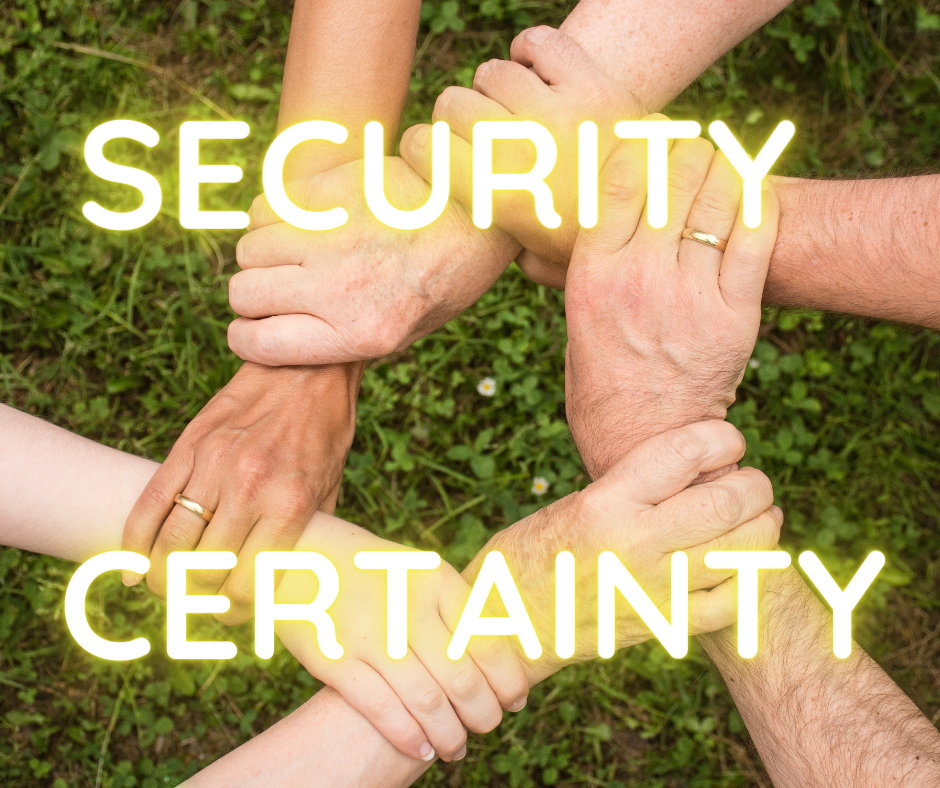
This is something that (almost) every leader does without thinking about it!
In the same sense, security and certainty is something we look for as a species, whether we know we’re looking for it or not!
There is something special about feeling safe on a planet where uncertainty has its fair share of the pie.
If that’s too philosophical for you, working as hard (and as long) as we can to be secure in our position and to be certain in our information and our plans brings us an increased chance at survival and success.
Plus, giving other people (especially your followers) a sense of security and certainty is one of the best ways to increase their confidence and faith in the direction you’re leading them in (as long as it isn’t false information/a bad plan).
And, it’s a lot easier than you think!
For argument’s sake, let’s say you don’t naturally produce security and certainty wherever you go. A ton of people cannot, and even a large number of leaders cannot as well.
What steps can you take to produce more security and certainty within yourself?
This is the first (and most important) step if you’re going to give security and certainty to our followers.
Understanding the biology and psychology behind these two feelings can truly take your leadership to the next level, and for some people, this knowledge is what begins their journey as a leader in the first place!

Are you ready? Fantastic! Let’s begin!
What are security and certainty?
Security is knowing and feeling that you and/or your followers are safe from harm in the short, mid, and/or long term.
Certainty is knowing and feeling that you are correct, and/or the conclusion you’ve arrived at is correct.
These two feelings are produced from the same neurotransmitter that produces confidence, serotonin, which means they’re rooted in biological roots and furthered by metaphysical undertakings!
For example, there are many different “perspectives” in which we can feel secure and certain.
Most people like to feel certain that they are going to survive, and many people perform actions/purchase products so they can secure that certainty.
Why do people purchase home alarm systems, even if they live in the middle of nowhere and have never experienced a break-in before?
Because they want to feel secure.
They want to be certain that they are going to survive, and when they’re asleep, they cannot defend themselves, so their uncertainty rises regarding this exact problem.
Or, perhaps they’re worried that someone will break in while they’re gone on vacation.
So, they install a machine that provides an alarm whenever someone triggers it.
Many homeless and jobless people feel insecure and uncertain because, in today’s time, money is an almost direct equation to security (excluding money gained from highly illegal/dangerous means). A jobless person is more likely to be anxious during an interview as opposed to a person who simply wants to switch jobs for this very reason!

If someone detects that they don’t have proper job security, even for a moment, their mental wellbeing will most likely take a dive until it rises back up again (sometimes it doesn’t rise back up again)!
Unstable relationships with parents or guardians can result in insecurity and uncertainty in young children.
Most of them rely on their parents/guardians to take care of them, so if the relationship between them becomes rocky, their wellbeing will most likely drop (sometimes for a little while, and sometimes forever, depending on an infinite number of factors).
But no matter what the problem is, or where the issue lies (in other words, no matter what your perspective is), there is always a way to feel secure and to share that security with other people!
Most of the time, security and certainty can be (at least started to be) formed by your conscious decision to form and maintain it!
This is the best kind of security to have as it isn’t attached to anything, it’s simply your choice to feel this way.
Contrast this with only feeling secure because you have something, or because you are something, etc.
In these cases, security and certainty can go away if we believe we need these things to feel secure.
But, simply choosing to feel them is much easier to maintain, and it’s healthier for you in the long run!
This can be achieved by repeating:
“I feel secure.”
“I feel certain.”
I encourage you to consistently repeat these thoughts every day for a month without missing a single day. See how you feel then!
On top of the metaphysical aspects, there are some grounded, biological aspects that make almost everyone on the planet feel secure.
Yes, these same things make (almost) everyone on the planet feel safe and secure, no matter who they are and what their background is.
Unfortunately, a lack of these things also makes (almost) everyone on the planet feel insecure and uncertain.
These things are:
-How much money they have relative to their situation

For example, if you have $5,000 in your savings account but you have to buy a $4,000 car, you won’t feel as secure as someone with $5,000 and no major upcoming purchases.
-How much money they’re projected to consistently make, as well as their job security in general
If someone has $5,000 but no monthly income, they won’t feel as secure as someone with $5,000 and a monthly income of $2,500.
-How much immediate danger their life is in (in reality AND in fantasy)

Even if you make $100,000/mo, if your life is in immediate danger, especially if it’s in immediate danger for a long time, you’ll (most likely) feel insecure and uncertain.
This can even be true if your mind tells you your life is in danger, even if it isn’t in reality!
-Whether or not they have any chronic illnesses that interfere with the flow of serotonin, or simply produce enough pain that offsets the feeling of security and certainty

These 4 factors are universally true amongst almost every human being on earth.
The only reason I say “almost” is because there are some who are enlightened, and some who do not/can not produce serotonin due to biological deficiencies.
In other words, a very small minority of people are exempt from these 4 rules when it comes to security and certainty.
Knowing this, it’s much easier to produce certainty and security inside of yourself because it’s much easier to identify why you feel insecure or uncertain, ever!
It could be that you only feel insecure for completely acceptable reasons, but even feeling insecure for a moment around your followers means they will most likely pick up on it, and if they don’t, I consider you lucky!
It is hardly realistic to feel secure and certain all of the time, however, that is a perfect goal to shoot for since you’re a great leader!
And, if you reach it, life will be all the better for you and your followers in the short, mid, and long-term!
How do you accomplish this goal? How do you accomplish the goal of feeling secure and certain all of the time as a leader?
The first step is to do your research.
What do you doubt yourself on? What research will be helpful for spreading to your followers? It’s likely that someone else already has the answer, and that all you have to do is find it!
For example, if you’re lacking security because you’re a leader in SEO who heard Google just rolled out a massive SEO update, immediately go check it out and apply any necessary changes to your team’s plan(s)!
This ensures that you’re still on the right track and that you feel absolutely certain that you’re leading them in the right direction!
As another example, let’s say you’re feeling insecure because half of your funders are threatening to withdraw their funding from your business.
You need these funders, so you drop everything and form a detailed speech/PowerPoint that will convince them you have what it takes to pay back their loans and more!
I can go on, but I have confidence you understand my point – figure out the sources of insecurity in your life, and do what you will to change it into a source of security and certainty (even if it’s simply repeating the thoughts I mentioned above)!
Doing this is amazing when you combine it with disidentifying from the reasons you feel insecure and uncertain.
Almost all of us have beliefs/reasons why we feel insecure, and usually, they are subconscious.
Sometimes they stare us right in the face, but most of the time, they are subconscious!
This means that sitting down with yourself and asking, “why do I feel insecure and uncertain? What makes me feel insecure and uncertain?” will give you a list of answers that you can write down.
Once you have them written down, you can subjectively tell yourself, “XYZ does not make me feel insecure anymore,” and do that for each and every reason you put down in your notes.

Personally, I like to dive into each reason and have a conversation with myself about it.
“Yeah, I guess this reason makes me feel insecure, it’s been that way since I was a kid! I guess it started with my parents, and I subconsciously continued feeling that way, creating a snowball effect in my adult life.
Anyway, I choose to disidentify from XYZ, and I choose to heal from it entirely!”
If you do both of these things in conjunction with each other, you will be producing the most amount of security and certainty possible within yourself at any given moment!
And, now that you understand the basics of what makes other people feel insecure/uncertain, you’ll (basically) understand how to make them feel secure/certain as well!
If you are a manager, for example, you can give your employees the promise that they’ll have job security if they do their jobs to the best of their ability!
Make sure to leave some room for mistakes because (almost) no employee wants to be under the impression that they have to be perfect just to keep their job.
If you are a great leader of any kind, you can harness your Leader’s Intelligence and spontaneously decide to do this whenever it comes to your mind (and whenever you can do so).
You can do your best to understand your followers and make them feel as secure and certain as you possibly can! Share on XYou also feel motivated to bring your followers as much security and certainty as you can manage, and sometimes, you do this without trying!
For example, simply offering the job in the first place is an action that’s worth more than 1,000 words!
If you attempt to give them security and certainty, though, in any way you choose to do so, you’ll be successful since you feel secure and certain yourself! And, doing so will make you a great leader!
Alternatively, your followers probably find security and certainty within you to begin with, and that’s why they’re following you – it’s just about consciously doing so, first to yourself, and then to them!
Will you make the effort to always feel secure and certain? Afterward, will you make your followers feel as much security and certainty as you possibly can? The choice is yours!

19• Spend Time Alone

When all seems lost, spend an hour alone in nature. Just be, think, speak, and feel. You’ll be surprised at what happens when you decide to do this!
20• Be More Passionate

We’ve already discussed compassion and empathy, but passion is something that many of us speak of yet many of us don’t possess!
In fact, while I was doing research for this post, I was surprised at the relatively low interest in passion when compared to how important it is for living a fulfilling life and for being a great leader!
When we look at its definition, we see that passion is “any powerful or compelling emotion or feeling, [such] as love or hate.”
This means that any emotion has the potential to be passionate as long as it is strongly felt and properly expressed!
Passion is extremely contagious because, as we’ve discussed before, emotions are extremely contagious in general! If you feel strongly about something, others will likely enjoy and agree with what you have to say!
Expressing strongly felt negative emotions, especially anger, may be met with skepticism at first, depending on how strong it is and how well you can control yourself.
When most people say, “I like a leader who has passion,” they are often referring to someone who displays strong, positive emotions, and they only want to see strong negative emotions if the situation is appropriate or if they otherwise agree with them.
You can bypass this expectation by becoming passionate with all of your emotions since passion is very important for being a great leader!
This is especially the case if you have negative emotions that lay in your subconscious, as most of us do.
Being passionate can also help you be more charismatic!

While people are divided on the opinion of whether or not a leader should be charismatic (for example, I don’t mind it very much, but my sister does), if you develop yourself in other areas (IE, you’re not just charismatic), being charismatic is much more of a positive than it is a negative!
However, being passionate can be difficult for those of us who are laid-back by temperament and personality.
For example, I used to be a massive introvert. I didn’t feel many strong emotions, and if I did, they were more likely to be negative ones.
Then I found the secret and wrote this short eBook that’s going to give you the secret to becoming more passionate.
Go ahead and check it out! I wrote it just for you!
*Smiles… again*
In all seriousness, it’s very easy to become more passionate and/or discover what you’re passionate about, even if you aren’t passionate by nature.
Some people are, and they often find their lives to be much easier than those who have to consciously cultivate passion into their life!
However, passion is a skill we can develop and practice, and I believe it’s extremely fun to practice and develop!
While it seems like a simple skill to learn, it can be difficult for the most introverted of us to feel and express our emotions, and this nicely transitions into my next paragraph.
How can we cultivate passion if we have none? How do we become more passionate than we already are? Also, how can we discover our hidden passions?
The same process answers all 3 questions at once!
Let’s take me as an example, younger me to be exact.
I was 100% an introvert, I didn’t want to be around anybody, and the only kinds of people I hung around were my co-workers. And, to be honest, I liked it that way!
But, I also didn’t have a lot of passion.
My emotions were there, but I was suppressing them (before I knew what I was doing), I wasn’t expressing them, and I certainly didn’t express my most intense emotions, the ones that brewed in the back of my mind.
Truth be told, I was afraid of what might happen when I expressed how fearful and angry I really was.
And, I truly believe that a lot of us are afraid to express our deepest and most sacred emotions.
We’re also busy all of the time, doing this and that, meeting this obligation and that obligation…
For many of us, our emotions take the backseat while our logical mind takes over and helps us do what needs to be done.
If you couple the two together – being busy and fear of expression – you (probably) won’t be very mentally healthy, and you certainly won’t be very passionate!
This is a very sad thing that I see happen to a lot of people.
However, there is some good news!
We (as people) have a fundamental law that is true for (almost) all of us universally – we seek to express ourselves and to be heard!

We do this for many reasons, not the least of which because communication greatly helps us keep things organized and running the way they should.
Therefore, the way to becoming more passionate is simply to express yourself as often/intensely as you possibly can!
Like I mentioned before, some emotions are more socially accepted than others.
Expressing intense anger will (usually) not be as well-received as expressing intense happiness.
However, expressing yourself as you are is an amazing way to become more passionate, no matter who you’re expressing yourself too!
You can be ranting to yourself while you’re alone and it’ll count as passion!
On a related note, I recommend expressing yourself as you are before moving on to the next step!
The reason is that, if you’re looking to become more passionate, you’re probably looking to intensely express the parts of yourself that you don’t (often) get the chance to.
Doing this will help you feel more positive in the long run, along with participating in the individuation process!
Are you ready? Great! Let’s continue!
The second step to becoming more passionate is to cultivate and express certain, intense emotions!
If you express what you already feel, you’re passionate.
If you cultivate certain emotions, make them intense, then express them, you’re taking passion to an entirely new level!
It’s well known that we have control over our own emotions.
Granted, most of us control our emotions on autopilot. It happens subconsciously. But that doesn’t deter us from the fact that we have the ability to control our emotions, and that we have the ability to create our own emotions.
We’ve talked about this earlier in the “confidence” section and the “maturing your inner monster” section.
The beliefs come first, then the emotions, and we can use our emotions as energy for the action we take.
If we take this all the way, we can create certain positive beliefs, which in turn will create positive emotions.
When we’re expressing our strong positive emotions, we’re expressing the purest form of passion possible, the kind of passion that makes you an absolutely wonderful leader!
Perhaps you’re wondering which emotions we should cultivate, and how we should cultivate them.
Passion is (sometimes) considered to be an emotion in and of itself, and if you choose to believe that it is, then passion doubles as an abstract concept and an emotion! This “doubling” happens with many other things, such as intuition, but it’s especially true with passion.
Therefore, some of the best emotions to develop and express are:
-Passion itself.
-Pleasure (relaxation)
-Humor (especially when storytelling)
-Confidence
-Motivation and inspiration
-Enthusiasm
-Love
-Intuition (another concept/emotion combination here)
-The feeling of intelligence (not the snarky kind, but the pure kind!)
Choosing to cultivate and express these emotions will certainly help you be more passionate in a positive way!
Once again, I’ll mention that I do not recommend creating your own emotional states to cover up negativity and trauma that may or may not be present.
Instead, I highly recommend expressing how you already feel and cultivate your desired emotions at the same time!

Doing one instead of the other usually makes the process slower since one side (usually the trauma) fights back against the desired change (cultivating these emotions).
Healing your trauma is one of the best ways to automatically become passionate, and you heal your trauma by expressing it!
There is one more thing I haven’t mentioned yet, and that is being passionate is quite fun even if you’re introverted by nature!
It’s fun to express how you subconsciously feel and cultivate the inner world you want to experience, and doing so makes you an amazing leader at the same time!
Spreading your passion to your followers is an amazing way to relieve their stress and tension, especially if you’re giving them information that directly addresses their issue(s) in a passionate way.
Some people may question your decision to become more passionate, especially if you’re more introverted by nature.
However, you get to decide how passionate you want to be, and you get to decide what “level” of passion works best for you!
I highly encourage you to express yourself further, and I highly encourage you to develop (and express) the positive emotions that are wonderful for everybody!

21• Create and Know Your Purpose

Many people, given time, find their purpose.
They figure out what they want to do, how they want to live, who they want to be, so on and so forth.
However, many more people end up creating their purpose!
They decide what they want to do, how they want to live, and who they want to be. They decide which paths of life are most meaningful for them instead of waiting for their purpose to happen to them!
I’ve always been a fan of the latter path, mainly because my purpose hasn’t shown itself and I got tired of waiting!
After thinking about it for a while, I discovered that a purpose and a goal are very similar to each other.
In fact, you can make a solid argument in favor of them being the exact same thing!
However, a goal and a purpose are slightly different, they’re set apart from each other in an important way!
A goal is an “end state,” like how we discussed before, but a purpose is a way of being or an actionable pattern of behavior! It can also be described as a reason for doing the things you do!
Some of you may notice that the dictionary definition of the word “purpose” is far different than what I’ve described above.
According to Webster Dictionary, purpose is “something set up as an object or end to be attained: Intention” or “to propose as an aim to oneself,” which sounds a lot like a goal to me.
While I’m usually content in accepting the true definition of a word, I’m going to challenge this one today!
The two definitions I described above are better suited for the word “goal” than the word “purpose.”
This is because having a goal means you have something to aim for, but having a purpose is having a reason behind why you’re aiming for the goal.
Your purpose is what you’re doing in the moment and why you’re doing it! This means you can have a purpose that’s positive, negative, neutral or anything in between, and it also doesn’t need an “end state” (a goal) to exist!

For example, when you go to the grocery store, you can say that your purpose is to get food. You can also say that your purpose is to get food because you’ll go hungry if you do not.
But, you can also say that you’re getting food so you can survive and live a higher purpose, a purpose beyond just eating food. These kinds of higher purposes are (most likely) what we’re interested in today, and they are likely why you are reading this part of the post!
So, what makes a purpose a higher purpose, exactly? Why should we craft them? And, how can we do so?
Many people are content with survival being their highest purpose.
They go to work, spend time with their spouse, eat, drink, work around the house, and sleep.
They live in a trance or a daze, never breaking free from their habits and going through the motions until they pass away.
To them, this is an ideal life, and they don’t look for much (if anything) beyond simply surviving.
On a personal note, I find this quite saddening. Life is meant to be lived, not suffered through!
However, a higher purpose is considered a higher purpose if it:
-Makes you feel good
-Gives you something else besides survival to live for every day.
-Encourages your followers to create and live for their own higher purposes.
Some people’s life purpose involves a large sacrifice, spiritual enlightenment, living by a higher moral order, and more, although these aren’t required to transform a purpose into a higher purpose!
If living by your purpose makes you feel like life is worth living, if it gives you something to live for every day, and if it encourages other people to do the same thing for yourself, you know your purpose is a higher purpose!
And having a higher purpose, of course, is a critical step in being a great leader.
Of course, creating (and being content with) a lifelong purpose is ideal, but creating a purpose that only works for 1-5 years will be just fine!
Creating a higher purpose, after all, doesn’t mean you have to make it a master purpose.
A master purpose is an unmistakable purpose that you feel and live by for the rest of your life! It doesn’t change because it is more than enough to give you (and others) infinite meaning for all time!
These kinds of purposes are easy to create, but they can be difficult to adhere to.
For example, a master purpose can be extremely simple, “my purpose is to help others.”
But, helping others isn’t always an easy thing to do, and so it’s very easy to scrap this purpose and move on with something else.
If you were to stick with it, however, you would ultimately find that its meaning is infinite and that it’s one of the highest purposes anyone could hope to adopt for themselves!
So, if creating and/or adhering to a meaningful purpose is so difficult, why should we do it? Why put ourselves through more trouble than we have to?
Besides the fact that people with purpose are extremely inspirational, the meaning generated from an amazing purpose offsets all of the pain/extra trouble you go through!

Even if this doesn’t happen in the moment, it’s still going to happen over a longer period of time.
Living by your purpose can be very painful in the short term, but even if the consolidation that everything will work out in the future isn’t enough to offset the pain, it will work out in the future, and it will be worth the moments of pain you endured.
If your purpose is not what you want it to be, chances are you already know that.
It’s very easy to sense whether or not you’re living with purpose, and so I encourage you to ask yourself the question, “do I have enough purpose, or should I create/live by one?”
If you want to go further, just know that people look up to leaders with a higher/master purpose!
Some leaders only care about profit margins and survival, but the ones who create and know their purpose are the kinds of leaders that everyone looks up to and wants to be!
Plus, having a sense of purpose is extremely meaningful for you as well.
So, how do you create your own purpose?
In many of these past points, I gave you some examples about how to do these various things. I even provide techniques and processes that, when followed, will help you develop that area of your life!
This time, I will not do any of that.
Your personal, unique purpose is for you to create, for you to know, and for you to live by!
You know how to craft your own, unique purpose, and you know how to live by it!
I have confidence that you already know how you want to live your life, and why you want to live it like that.
Even if you do not, I trust that you have the ability to ask yourself, “what do I want my purpose to be,” and come up with a stunning answer that may even change your life forever (in a positive way)!
Your purpose doesn’t need to be perfect, nor do you need to live by it perfectly, especially at first.
However, I highly encourage you to turn within yourself to find your own, unique purpose without any outside influence whatsoever.
Sure, for things like passion I can help out a bit, but not with purpose.
This is all you, and it would be wrong of me to give you a step-by-step tutorial of how to create your purpose.
Once you build it and live by it for a while, I definitely recommend revisiting it and seeing what could change/be improved/modified/taken away from it so it can be your best possible purpose!
You can do this as many times as you’d like, but don’t let me jinx it! I want you to create your master purpose on your very first try 🙂
Will you create and live by a higher/master purpose? Will you take on the challenge and try again if you don’t succeed? The choice is yours!

22• Eat a Healthy Diet, and Exercise Often!

I’m not here to be your health expert, however, healthy eating and regular exercise are not just about setting a great example for your followers, but it keeps your mental faculties sharp and your body fully regulated!
And, as we all know, a regulated body is a healthy body!
You and I already know that these things are good for us, and perhaps you already do them!
However, if you’re like me, it can be difficult to stick to these two things and really committing myself to eat raw spinach with every meal 3-4 days out of the week.
I’ve been on and off healthy diets for years now, but the day before yesterday was a wake-up call for me.
I was feeling sluggish, tired, weak, stressed, and more even though I had a great mindset.
I should have been feeling great, but I wasn’t!
I suspected it to be mineral and vitamin deficiency, so I quickly went to a free vitamin testing website and plugged in my symptoms.
According to their results, I was deficient in almost a dozen different vitamins including iron, zinc, magnesium, B12, and a lot more!
And, I knew why – I was eating the same kinds of things every day! They were healthy, sure, but they weren’t giving me all of the vitamins and minerals I needed to be healthy.
So, I dove in and did my research.
“What kinds of foods give you iron and B12? What cheap and healthy foods give you iron and B12?” So on and so forth for almost a dozen different vitamins and minerals.
What I came up with was a simplified list of the foods I should start eating regularly, and while it may not be individualized for your needs, I still want to share it with you in case you’d like a simplified “healthy food list” as well.
Here is what I should eat more of:
Salmon
Potatoes (mashed potatoes)
Broccoli
Oranges
Spinach
Beef
Eggs
Bananas
Dark Chocolate
Avocados
Peanuts
Almonds
…and here’s why:
Salmon, once a week on Sunday (B1, B3, B6, magnesium, omega-3, B12, vitamin E, selenium, D)
Tuna, whenever (B3, B6, B12, iron, iodine)
Mashed potatoes, 3 times a week (Healthy starch, potassium, A, C, B3, B5, B6, manganese)
Broccoli, 3 times a week (Iron, chromium, B5, B7)
Oranges (C, potassium)
Spinach, 2 times a week (Magnesium, iron, manganese, B1, A, C, K)
Beef, 2 times a week (B1, B2, B5, B7, B12, protein, selenium)
Eggs, at least twice a week (B1, B5, B6, B12, iodine, selenium, zinc)
Bananas, 4 times a week (Potassium,
magnesium, C, B6, B7, manganese, fiber, selenium)
Dark Chocolate (Magnesium, iron, copper, anti-oxidants, zinc)
Avocados, once a week (Magnesium, B vitamins, B3, B7, Vitamin K, fiber, Vitamin E, healthy fats)
Peanuts and almonds, 2 times a week (if possible) (Vitamin E, B3, B5, B7, zinc)
I tested low in almost every single one of the V/M you see above, and the above foods are the cheapest and healthiest I can find that contains said V/M!
Great, eh?
What’s great about this list, IMHO, is that doesn’t necessarily exclude any treats like chips or sweets, but rather, it implies that I have to eat them on top of whatever Gabriel’s Best Diet Ever, Inc has in store for me that day!
I like how this works because if I want a burger from In-N-Out, I have to find a way to squeeze it in with the healthy lunch I already have to eat (if I don’t want to be deficient), and more often than not, it isn’t worth the trouble.
If you want, you can take this concept even further by planning out which meals of the month will be “cheat meals” instead of deciding on the fly!
For example, I’m going to a party on May 7th, and Mother’s Day is on May 9th.
I’ll be eating cheat meals on both of those days, and funnily enough, I’ll still try to eat the nutrients I need even though I’ve decided it’s okay for me to cheat!
Gotta stay healthy, you know!
Planning cheat meals in advance removes the guilt of spontaneously cheating on your diet, and we all know how fun it is to eat some ice cream here and there 🙂
Eating a healthy diet helps you be a great leader because living healthy is the pinnacle of living!
It’s also a show of discipline, and it can help you build discipline if you’re like me and still need to become more disciplined.
As far as exercise is concerned, I see a ton of people who make exercise a gigantic part of their lives.
Some people even make a great living from exercising! But, I’ve always liked keeping it simple.
If it’s a muscle I can’t develop with a pushup, a situp, or a walk in the woods, it isn’t going to get developed.
In my mind, I want to stay in shape while I write my heart out for a living, not get as big as a dinosaur… So, 50 pushups, 50 situps, and a 0.5-mile walk per day are enough to satisfy me! It only takes 15-20 minutes per day (in total), not bad for making sure I’m as healthy as can be!
Perhaps you share the same sentiment! If you do, I highly recommend combining a healthy diet and substantial exercise into a loving union, and if you want to eat healthier or work out more than I do, more power to you!
While the food tastes odd and the exercise hurts, they make us feel better for the rest of the day, and in my opinion, it’s a feeling that we should never ignore 🙂
Are you going to eat raw spinach 4 days a week with me? The choice is yours! 😉

23• Be Consistent and Persistent
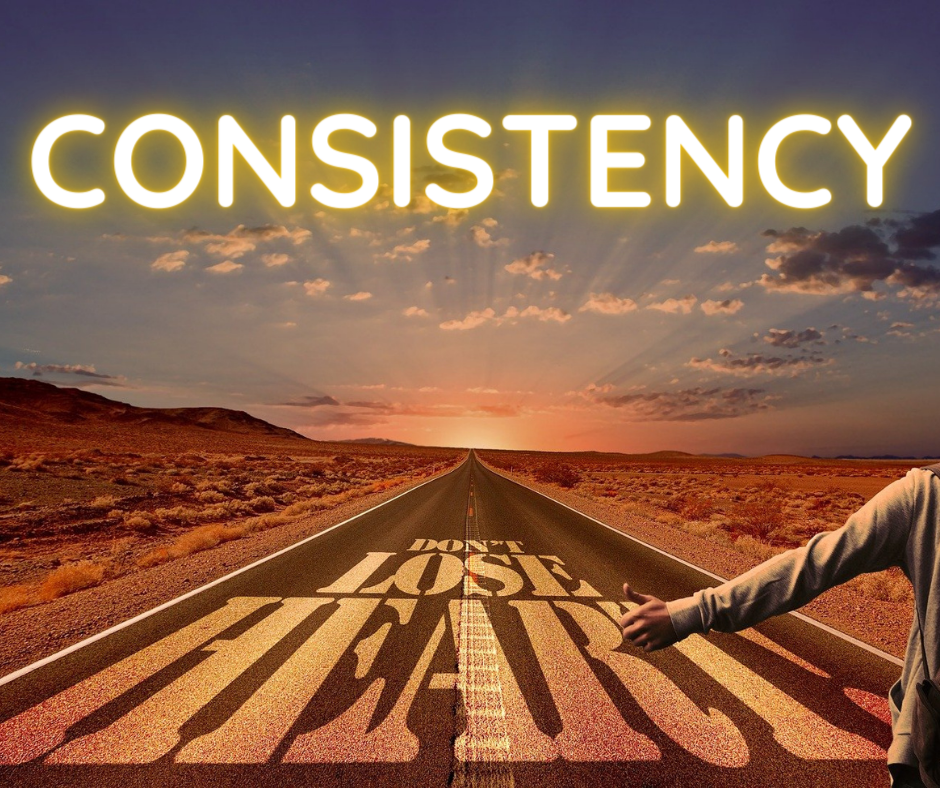
If you go back and read most of these previous points, they lead towards a hidden truth that I’m about to express:
Being consistent and persistent wins the day!
Once you have the right techniques, the right processes, the right answer, consistency and persistency will take you the rest of the way!
They’re truly the bread and butter when it comes to being (and remaining) a great leader! As long as you’re consistent and persistent in your ways, you’ll achieve exactly what you set out to achieve.
Hopefully, you’ll only set out to achieve the best things you can possibly shoot for 😉
So then, if consistency and persistency are so great, why is it (often) so hard to be consistent and persistent?
Why is it often so difficult to stay consistent even when we know we’re heading in the right direction?
The answer isn’t as simple as it seems, and depending on who you are, it’s quite multi-faceted:
-Being consistent with something can often be quite boring, and a part of us wants to change it up and be stimulated. (Almost) everyone values change very deeply, and being consistent goes against this value by nature.
-Being consistent can invite repressed emotions to come to the surface, and most of the time, these repressed emotions make it difficult for us to stay consistent.
-Some of us subconsciously (or not-so-subconsciously) rebel against consistency, and this (sometimes) happens because we are afraid of commitment and an infinite variety of factors.
-Let’s not forget about short attention spans, and subsequently, disorders such as ADD and ADHD.
These are 4 of the main reasons why it’s difficult to be consistent, and I’m sure there are many other reasons as well!
Whether we’re consistently working towards a goal, doing the same thing (usually for work) every day, or living in the same general routine every day, there’s no doubt it can be difficult to keep it up from time to time.

As it turns out, however, the reasons why we want to break routine are usually very valid when we dig into them!
For example, I discovered a lot of subconscious trauma I had surrounding work and career while I was writing this post. I had to break my consistency and spend 2 full workdays dealing with it because of how strong and intense it was!
While I had to sacrifice two days to take care of my mental health, it probably wouldn’t have surfaced in the first place if I didn’t choose to consistently write this article.
I think there’s still some left over, too…
Not only does being consistent invite past trauma to arise once again, but if you’d rather be doing something else, your mind will try to get your attention by distracting you.
If you ignore it, it may become angry, and that may manifest as something like, “I don’t want to do XYZ anymore,” “I hate XYZ,” etc.
In other words, the anger you feel in the present can easily turn into trauma if it accumulates to a certain point without being noticed!
If you (or your followers) have trouble being consistent, no matter what the reason is, it’s likely for a very good reason (as opposed to just “having a lack of discipline”) that should be addressed and handled!
After forming a new perspective on consistency and persistency, healing any underlying trauma that makes it difficult to be consistent, or finding your unique solution to your unique problem, it’s very easy to be determined and keep going at it for as long as you’d like!
You’ll notice that you start getting what you want and that you’re happy with being consistent day after day, week after week, month after month, year after year!
Because, while we all know that being consistent is one of the keys to success, knowing how to feel good while being consistent is rarely touched on, but it’s actually quite easy:
Choose to feel good while you’re being consistent!
Some of us hate being consistent because we aren’t getting that “dose of novelty.”
Usually, being consistent is simultaneous with “do this non-stimulating activity over and over.”
This isn’t always the case, but if it is, I encourage you to choose to feel good while you’re participating in this consistent, non-stimulating activity!
Maybe this means you stop the activity for a split second and say to yourself, “I choose to feel good while being consistent,” or maybe it means you take every chance you get to do so!
Eventually, not only will you be on the path to success, but you’ll feel good while doing it!
It’s worth it to build a positive mindset around being consistent and persistent because if consistency is the path to success, it may as well feel good to go down!
And, never forget – if you’re consistently going down the right paths, you will eventually reach the point where you can experience more novelty than ever before!
For example, if you choose to work at the same place for 20 years instead of 10, you can save a lot more money and be able to take more vacations than if you only worked there for 10 years!

Consistency leads to novelty (when done correctly).
Also, it’s possible to re-think how you view novelty and consistency and combine the two together before you even start your day!
How do you do this?
Well, think about the great feeling you’d get from doing whatever you want with no consequences, and combine it with the consistent action that can make your dreams a reality!
This is an advanced version of choosing to feel good when you’re acting consistently (and without stimulation) because you’re essentially living both realities at once if you do this!
It’s even possible that you can stop being consistent and choose to live a novel life for a living.
This greatly depends on your circumstances, whether or not you have a plan that will net you a profit, etc, but if you do it right, you can live a (mostly) non-consistent life for a living!
What you would do greatly depends on you, what you like to do, what you find novel and interesting, etc.
However, if you choose to go down this path because you hate consistency, you hate your job, or you can’t ever seem to stick to a schedule, I recommend turning into yourself and asking, “why?”
Always heal your trauma and/or change your perspective, never try to put a bandaid on the pain!
Once you’re being consistent and persistent with no problems whatsoever, and even after you’ve started thinking about it and running it through in your mind, you’re a greater leader than ever before, and your followers will look up to you and follow in your footsteps, footsteps that are definitely leading them in the right direction!
Will you be (more) consistent and persistent? Will you overcome the challenges they bring before you? Will you decide to be novel, or to combine novel and consistency together?
The choice is yours!

24• Have More Soul ‘n Spirit

We’ve been talking a lot about emotions in this article because they’re extremely important! They’re produced by your beliefs and your actions, and they greatly influence the overall well-being of you and your followers.
However, as we’re getting to the end of the article, we’ll address one of the most mysterious and important things to talk about when it comes to being a leader, and that has to do with S&S, or soul and spirit!
This goes in line with being spiritually aware, which we talked about at the beginning of the article, but being spiritually aware doesn’t necessarily mean you have soul or spirit!
Trust me, I learned the hard way.
Your spirit and your soul are different from your emotions in the sense that they’re very, very metaphysical.
Emotions can be felt (sometimes quite intensely), but soul and spirit are not always felt by many of us who live our lives today.
However, soul and spirit are different than emotions in a unique way.
When you have them you certainly feel them, but they go beyond emotions in a very meaningful way, a way that’s hard to describe but easy to recognize once you’ve had the experience.
For example, when I found my soul (in a dream) for the first time, I instantly knew what it was.
Even though I had never seen, heard, or felt it before, I knew that this character was my soul, sitting on a rock in the middle of the desert.
How did I know? Because the feeling was unmistakable, but also because I was metaphysically at ease.
I didn’t have to think or meditate at that moment, I didn’t have to go searching for spiritually meaningful things and events, I could simply be, and simply being was more than enough!
Being in the presence of my soul was absolutely incredible, and I’ve done everything I can to integrate it into my everyday life.

What about spirit?
A lot of people have different opinions on what spirituality is, but in my experience, the feelings/effects of spirit itself are very, very noticeable.
For example, many people consider themselves religious and/or spiritual for their entire lives, but they never get to experience spirit itself.
This is because having spirit is a choice instead of something that results from a practice.
You can choose to have spirit right now and you’ll have it. It’s free, takes no effort to have, and it really is oh-so-amazing!
But, what is it like, exactly?
Spirit, as I’ve experienced it, is an intense positive feeling that has always presented itself as the color white.
In addition to this, it is a metaphysical state that is regenerative, enlightening, and able to be seen in your mind!
Usually, when I choose to feel spirit, it comes in through the top of my head and I see something happening in my mind.
I’m no longer intellectually restless, I feel amazing, and I can direct my thoughts in a clear, amazing direction with little to no effort whatsoever!
Compare that with feeling fear, anger, or trauma, and you’ll see why I prefer it.

In addition to these things, I’m more likely to find infinite meaning in things and events when I have spirit, even if they’re mediocre, everyday things/events!
And, my dreams are less likely to be restless as well, which indicates that having spirit helps regulate your emotions on a metaphysical level, which is just as important as regulating them on the physical level.
That’s great and all, but how do these things help you be a great leader?
If you have soul and spirit, your interactions with your followers are (most likely) going to relax their busy minds and make their day a little bit calmer.
They will probably feel relaxed in your presence, they will feel infinite meaning while there around you, and they’ll experience many more benefits that are, quite frankly, scientifically unexplainable!
Having soul and spirit is more important today than ever before because so many of us are looking for something beyond just surviving!
We look for that thing that we can instantly recognize, yet barely put into words!
And those things, ultimately, are soul and spirit!
Sure, we can pursue positive emotions and live a very content life!
But, if we take our pursuit all of the way, we’ll find that our journey goes beyond emotions and into the mind.
Yes, there is emotional fulfillment, but there is also intellectual, metaphysical, and spiritual fulfillment as well!
Having S&S is so very simple, and having it also makes you a great, great leader!
It gives you an ethereal and mystical component, something that many of us (subconsciously) seek for and appreciate!
And, of course, you don’t need to have soul and spirit all of the time.
An infinite number of intense emotions can arise at any time (including trauma), and when this happens, it’s usually beneficial to live in the moment and act as we may!
But, especially in the times when our mind is restless, and when we crave something “more,” choosing to have soul and spirit is often the answer!
It’s easiest to find S&S while we’re dreaming, but we can choose to have it whenever we’d like.
And, to top it all off, this is coming from someone who didn’t believe in the soul or spirit 3 years ago!
If you asked me whether or not I had a soul, I would have said, “maybe, but probably not.”
But, a bunch of peculiar experiences later, I’ve discovered that soul and spirit are something in a category of their own, and that they’re extremely important for leadership!
They’re separate from emotions because they have the power to create emotions, as opposed to just being an emotion.
And, you have the power to summon them whenever you’d like!
Will you choose to have soul and spirit? It’s up to you!

25• Do Everything With Love

Our final point is a bit less controversial than the last one, and it’s something that’s extremely, extremely important for being a great leader:
Love!
If your actions aren't regenerative towards yourself and your followers, then you may be leading them in body, but not in heart, mind, soul, or spirit. Share on XTherefore, if you lead with love, you’ll be the greatest leader ever to be!
Of course, I’m not speaking of romantic love, but love towards your fellow man.
One of the greatest things about love is that there are many kinds of love and that you can choose to give as much of yourself as you want to!
Many people choose to give everything to their partner and leave (almost) nothing for others!
This is the result of believing that they should only love their partner.
In a certain sense, they’re right – if they loved another as a partner there would be sadness and conflict between the three parties involved.
However, it’s possible to love your partner as deeply as you can, but also love your followers in the sense of treating them like family!
These are two different kinds of love entirely, and especially in the latter case, they exist to serve two different kinds of people!
Your followers won’t get the same kind of deep love you give your partner, nor should they expect it.
But they do deserve the love you give them by being empathetic, helping them succeed, making them feel good, and leading them in a direction that’s paved with love for you, your followers, and all of mankind!
This is more of a “general” love than a “deep” kind of love.
While it’s extremely sad, I see many leaders try to take shortcuts and say they love their followers when they really don’t.
Your followers will know if you possess this kind of love for them or not!
It’s very easy to sense this, and some people even subconsciously (sometimes not-so-subconsciously) go against their leaders because they are more loving as a whole!
I’m not jinxing anything, of course, but I’m content with saying how reality has played itself out up until this point, and now it will (probably) play itself out for many years to come, which on a higher note, goes very well with my next paragraph.
Love, just like many other things we’ve spoken about on this list, is almost a direct equation to success!

The more you love your followers, the more they’ll love you back, the more your leadership will lead them in the right direction, and the more they will willingly follow you!
Perhaps you’re like me and you struggle with loving others.
If so, one of the best ways to love others is to learn how to love ourselves!
Cliche as it may sound, self-love is one of the most profound things we can do for ourselves, no matter how we want to go about it!
For me, it means eating a healthy diet, getting plenty of exercise, learning something new, working, healing my trauma, thinking, speculating, and traveling when I can, among other things.
What does self-love look like for you? What can you do for yourself that makes you healthy, happy, and feeling like you’re on top of the world?
Once you’re (consistently) doing those things you’ll find it much easier to notice what others can be doing to love themselves more, which makes it very easy to love them.
For example, if you’re a manager who notices one of your employees working way, way too hard (even though it seems like they don’t want to), find out when and where to give them an extra break during the day!
Notice that slowing down is something they should be doing for themselves, but since you’re doing it for them (especially in the right energy), it’s an act of love at its core!
Or, let’s say you have a following on the internet and you know your audience is in the mid-to-high 20s, and that they enjoy the niche in which you lead.
20-year-olds tend to love free things, and since you know this, you can offer to give away 5 of your products for free to 5 random followers!
In the same tonality, it can be difficult to know how to love someone, especially if they’re not your partner, and especially if you only know them from the internet.
This is why observing your followers and gaining as much information about them as you can really helps you lovingly act towards them!
Of course, knowing the basics of empathy and human psychology will be extremely helpful in loving your followers the right way, but to really love them you should (almost always) get to know them as well as you possibly can!
While acting with love in everything we do is an amazing way to act, I’m sure many of us have had the misfortune of following leaders who didn’t lead with love.
Some of these people only do minor damage to their followers, while others do massive damage to their followers.
These people, while competent leaders (hopefully), forget a very critical aspect of leading, an aspect that should always be remembered when we’re leading, and that is love is an amazing destination to head to!

Not only is love regenerative, but a goal (an end state) that produces more and more love when reached increases our chances of survival!
This is (partially) because we are cohesive beings by nature!
We have a larger chance of survival the larger of a group we are, and mathematically, this assertion makes complete sense!
Yes, we love competition, and yes, sometimes we go to war, but there is always an underlying cohesion beneath competition and war!
For example, two basketball teams are not allowed to violently hurt each other. If someone purposely hurts a team member (of either side) they are immediately disqualified, and depending on how bad the offense was, they may even end up in jail.
But, what about war? Certainly something like that can’t be cohesive!
…except we have the Geneva Protocol, a protocol that “… prohibits the use of “asphyxiating, poisonous or other gases, and of all analogous liquids, materials or devices” and “bacteriological methods of warfare”.”
It’s also “…considered by many to be part of customary international law.”
Even in war, some things are considered to be too inhumane, too harmful to use on the opposing force, not to mention the cohesiveness that must take place for an army to collect and successfully attack/defend against their opponent!
I’m not justifying war, however, all of the above is proof that we are cohesive by nature and that we have a better chance of survival/being fulfilled if we approach ourselves and our followers with love!
I’m not saying you can’t have competitions with your followers, we’re competitive by nature as well!
But, at the end of the day, love doesn’t have to be this thing that we leave by the wayside in favor of other things, it’s absolutely critical to our survival, and best of all, it’s regenerative and fulfilling to (almost) everyone who experiences it!
Once everything we do is an act of love, we will become the greatest leader of all 🙂

Wrapping It Up
So, in short, what can we take away from this post?
Being a great leader may not be easy, but there are definitely some steps we can take to lead our followers (and ourselves) in the right direction!
-Become Honorable
-A Confident Leader Is A Great Leader!
-Assert Yourself Properly!
-Become A Master Of Empathy
-Understand Your Inner Alpha Male/Female
-Become (and Stay) Spiritually Aware
-A Great Leader Knows Their Stuff
-Be Able To Earn Money
-Understand The Truth of Power and Control
-Relieve and Prevent Stress
-Create, Organize, and Carry Out Fantastic Goals
-Be Encouraging, Motivating, and Inspiring
-Become Highly Skilled In Your Niche
-Know How To Think, Speak, and Write
-Know Your Worth and The Worth Of Others
-Know How To Make Tough Decisions Properly
-Develop (and Mature) The Monster Within
-Bring About Security and Certainty
-Spend Time Alone
-Be More Passionate
-Create and Know Your Purpose
-Eat a Healthy Diet, and Exercise Often!
-Be Consistent and Persistent
-Have More Soul ‘n Spirit
-Do Everything With Love
Once we manage to incorporate as much of this into our lives as we possibly can, we will become the greatest leader we know!
It isn’t impossible to be greater than the great leaders who led before us, and I truly believe that trying to be greater is what will make us greater!
Also, try combining two tips together! For example, if you’re giving a speech, start the speech with love and do an awesome joke halfway through! None of these tips are meant to be singled out and used on their own, combine them as you want to!
If you wanted me to sum up this article in one sentence, it would be this:
Know yourself!
Conclusion
Thank you so, so much for reading this article! It took over 100 hours to write, not counting the re-writing, editing, and pictures, so I’m truly thankful you decided to stick with it until the end!
I’m also impressed! Did you just read that whole thing?! Wowie! Now you have a pretty good idea of what a great leader looks like 🙂
It is my deepest wish that I’ve made a positive impact and inspired you to become a greater leader than you already are!
I truly want you to become what you want to be, and I’m 100% positive these tips will help you do so in one way or another.
Also, yes, this is the longest blog post on the internet!
It ended up clocking in at 36,567 words, which is absolutely incredible by my standards!
What I’m most proud of is I made a conscious decision not to sacrifice quality for quantity.
I wanted to have both quality and quantity wrapped up in a single post, and I’ve done my very best to do so with The Modern Leader!
While you’re here, why not leave a comment and tell me your thoughts! I’d love to hear what you have to say, and I’ll do my best to respond to you!
Please share this on social media! I want this post to get a lot of exposure, I worked very hard on it!
If you’d like to continue building confidence, one of the most important aspects of a leader, I encourage you to check out NLP’s course on radical confidence, and how you can obtain it for yourself!
Also, I’d appreciate it even more if you signed up for my mailing list! I only send 6 emails over the course of 60 days, so I definitely won’t be spamming your inbox.
And don’t worry, they’re much shorter than this article ;).
When my book releases, I’m sending a discount to all of my subscribers, so you definitely won’t want to miss that!
Take care you wonderful person, and I’ll see you next time 🙂
Sources
This post was written with some help by:





